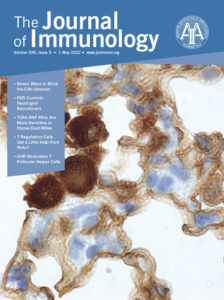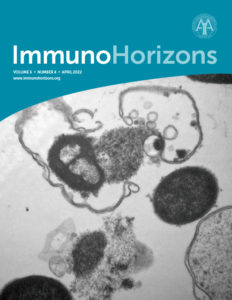Scientific Program
Contents
All listings subject to change.
President’s Program
Friday, May 6, 2022 5:00 PM – 6:30 PM Portland Ballroom 252–255
AAI President’s Address
Generously supported by 10x Genomics
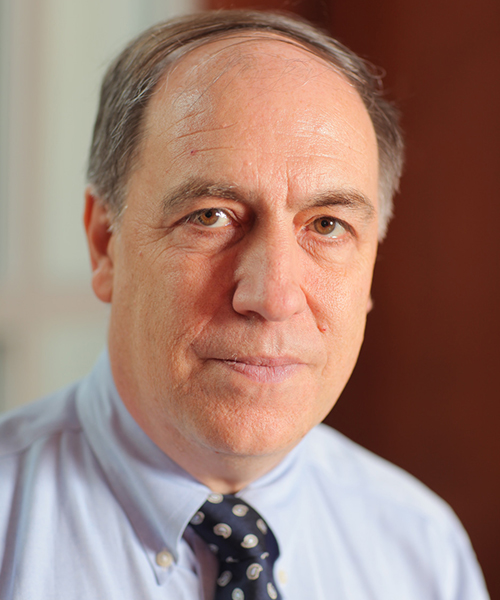
Gary A. Koretzky
Cornell Univ. and Weill Cornell Med., AAI President (2021–2022)
Immunology: Building on the Past to Meet the Moment
Arthur Weiss
HHMI, Univ. of California, San Francisco
Introduction
Monday, May 9, 2022 12:30 PM – 2:30 PM Portland Ballroom 252–255
AAI President’s Symposium
Generously supported by GSK
From Fundamental Investigation to Revolutions in Health Care:
Stories of Immunological Discovery
Chair
- Gary A. Koretzky, Cornell Univ. and Weill Cornell Med., AAI President (2021–2022)
Speakers
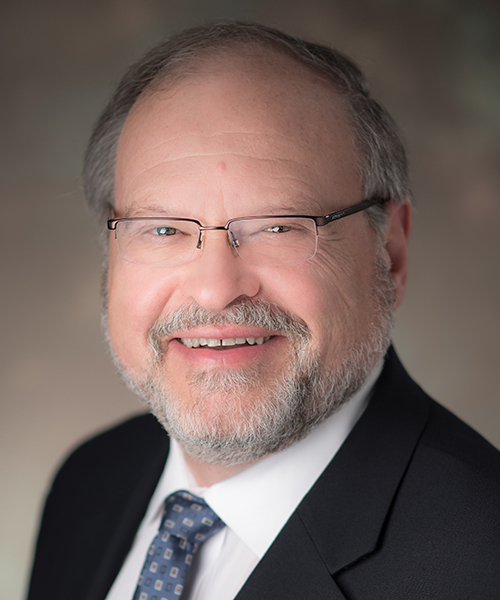
Arthur Weiss
HHMI, Univ. of California, San Francisco
Early efforts to understand how the oligomeric T cell antigen receptor signals led to simplicity and complexity
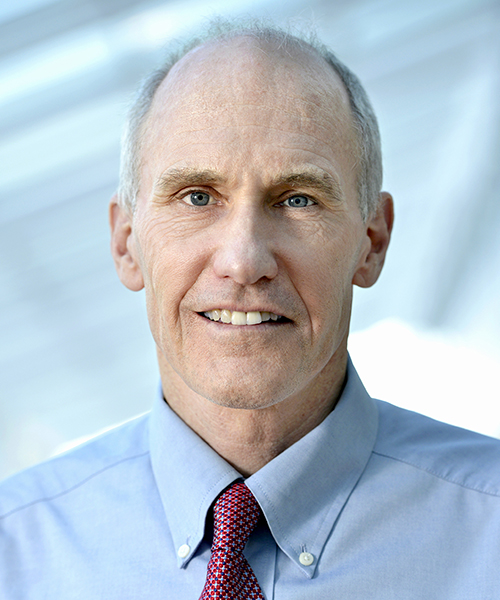
Carl H. June
Univ. of Pennsylvania Perelman Sch. of Med.
Engineering the immune system as a new tool for cancer therapy
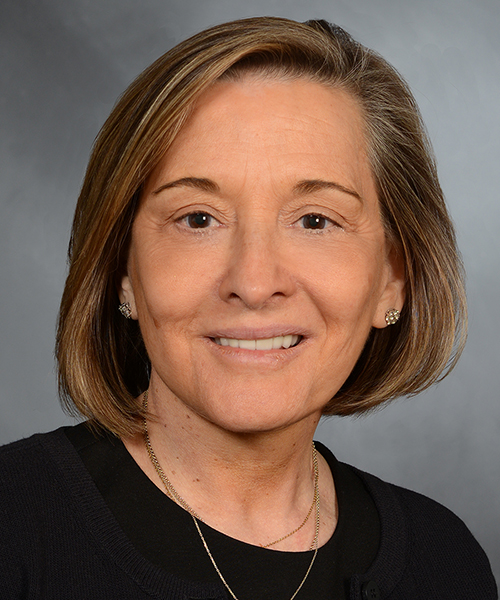
M. Virginia Pascual
Weill Cornell Med., Drukier Inst. for Children’s Hlth.
A roadmap to personalized therapies for autoimmune diseases
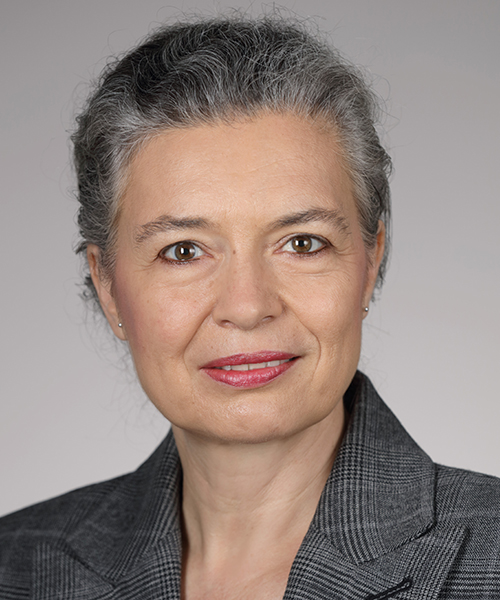
Raphaela T. Goldbach-Mansky
NIAID, NIH
Autoinflammatory diseases in children
Saturday, May 7, 2022 6:00 PM – 6:45 PM Portland Ballroom 252–255
Distinguished Lecture—Robert D. Schreiber
Chair
- Cathryn R. Nagler, Univ. of Chicago, AAI Program Committee Chair
Speaker
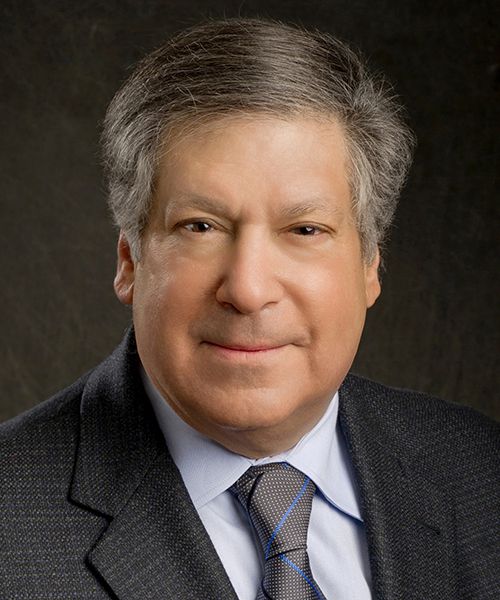
Robert D. Schreiber
Washington Univ. Sch. of Med. in St. Louis
Neoantigens as probes and targets of immune responses to cancer
Sunday, May 8, 2022 6:00 PM – 7:00 PM Portland Ballroom 252–255
AAI-Thermo Fisher Meritorious Career Award Presentation and Lecture
Generously supported by Thermo Fisher Scientific
and the
2022 Distinguished Lecture
Chair
- Gary A. Koretzky, Cornell Univ. and Weill Cornell Med., AAI President (2021–2022)
Award Recipient
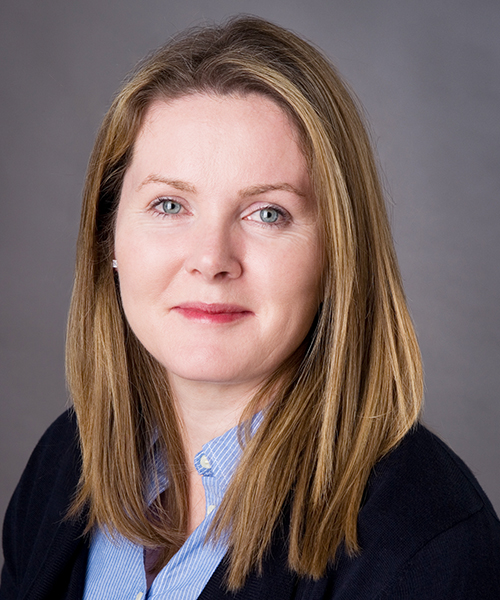
Katherine A. Fitzgerald
Univ. of Massachusetts Chan Med. Sch.
Regulation, initiation, and resolution of inflammation
AAI President Gary A. Koretzky and David Piper, Senior Director of Research and Development (Protein and Cell Analysis), Thermo Fisher Scientific, will introduce the awardee and present the award immediately prior to Dr. Fitzgerald’s lecture.
The AAI-Thermo Fisher Meritorious Career Award recognizes a mid-career scientist for outstanding research contributions to the field of immunology.
Monday, May 9, 2022 6:00 PM – 6:45 PM Portland Ballroom 252–255
Distinguished Lecture—Yasmine Belkaid
Chair
- Cathryn R. Nagler, Univ. of Chicago, AAI Program Committee Chair
Speaker
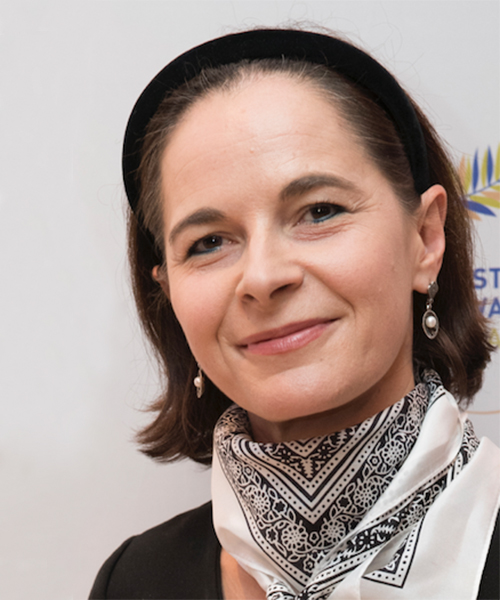
Yasmine Belkaid
NIAID, NIH
Control of tissue immunity and repair by the microbiota
Saturday, May 7, 2022 8:00 AM – 11:30 AM Portland Ballroom 252–253
Major Symposium A
Development of the Immune System
Chairs
- Avinash Bhandoola, NCI, NIH
- Ellen V. Rothenberg, Caltech
Speakers
- Ellen V. Rothenberg, Caltech, Transcriptional and epigenetic regulation of single-cell decisions to enter the T cell developmental pathway
- Kenneth M. Murphy, Washington Univ. Sch. of Med. in St. Louis, Mechanisms of divergence during dendritic cell development
- Albert S. Bendelac, Univ. of Chicago, An ILC2-specific Gata3 enhancer
- Gretchen E. Diehl, Mem. Sloan Kettering Cancer Ctr., Development of microbiota specific T cells
- Gay M. Crooks, Univ. of California, Los Angeles, A dish of T: in vitro models of human T cell development
- Avinash Bhandoola, NCI, NIH, Transcriptional control of thymic epithelial cell development and its impact on T cell function
Saturday, May 7, 2022 8:00 AM – 11:30 AM Portland Ballroom 254–255
Major Symposium B
Macrophage Biology, Diversity, and Inflammation
Chairs
- Mireia Guerau-de-Arellano, The Ohio State Univ.
- Claudia V. Jakubzick, Geisel Sch. of Med. at Dartmouth
Speakers
- Claudia V. Jakubzick, Geisel Sch. of Med. at Dartmouth, Resident macrophage diversity in the lung
- Kristin L. Patrick, Texas A&M Univ., Defining the contribution of RNA-binding proteins to macrophage activation and innate immune gene expression
- Rafael Czepielewski, Washington Univ. Sch. of Med. in St. Louis, Lymphatics and tertiary lymphoid organs in IBD: Balancing immunity, inflammation and flow
- Jian Zhang, Univ. of Iowa, Regulation of innate immunity by E3 ubiquitin ligases
- Thirumala-Devi Kanneganti, St. Jude Children’s Res. Hosp., Targeting innate immunity and PANoptosis for the treatment of inflammatory and infectious diseases
- Edward B. Thorp, Northwestern Univ., Coordination of macrophage metabolism with tissue repair
Sunday, May 8, 2022 8:00 AM – 11:30 AM Portland Ballroom 252–253
Major Symposium C
Sex Differences in the Immune Response
Chairs
- Sabra L. Klein, Johns Hopkins Bloomberg Sch. of Pub. Hlth.
- Shannon E. Dunn, Univ. of Toronto, Canada
Speakers
- Sabra L. Klein, Johns Hopkins Bloomberg Sch. of Pub. Hlth. , SeXX differences in immunity to influenza and SARS-CoV-2
- Shannon E. Dunn, Univ. of Toronto, Canada, Sex differences in the effect of obesity on T helper 1 immunity
- Dawn C. Newcomb, Vanderbilt Univ. Med. Ctr., Sex hormones regulate allergic airway inflammation in asthma
- Jun R. Huh, Harvard Med. Sch., Pregnancy plays a major role in dictating viral-induced immune responses
- Bérénice A. Benayoun, Univ. of Southern California, Lifelong sex differences in neutrophil phenotypes
- Kanakadurga Singer, Univ. of Michigan, Sex differences in obesity-induced meta-inflammation
Sunday, May 8, 2022 8:00 AM – 11:30 AM Portland Ballroom 254–255
Major Symposium D
Maintaining Tissue Homeostasis during Initiation and Resolution of Inflammation
Chairs
- Daniel J. Campbell, Benaroya Res. Inst.
- Keke C. Fairfax, Univ. of Utah
Speakers
- Keke C. Fairfax, Univ. of Utah, Influence of bone marrow inflammation on tissue immunity
- Sarah L. Gaffen, Univ. of Pittsburgh, IL-17 signaling crosstalk during inflammation
- Gudrun F. Debes, Thomas Jefferson Univ., Skin regulatory B cells: homing and function
- Brian S. Kim, Icahn Sch. of Med. at Mount Sinai, Itch paradigms: neuroimmune regulation of somatosensation
- Daniel J. Campbell, Benaroya Res. Inst., Manipulating regulatory T cell activity in tissues to treat autoimmunity
Monday, May 9, 2022 8:00 AM – 11:30 AM Portland Ballroom 252–253
Major Symposium E
Tumor Microenvironment
Chairs
- Shannon J. Turley, Genentech
- Nikhil S. Joshi, Yale Univ. Sch. of Med.
Speakers
- Assaf Magen, Icahn Sch. of Med. at Mount Sinai, mregDC/T helper niches enable local reactivation of CD8+ T cells upon PD-1 blockade
- Nikhil S. Joshi, Yale Univ. Sch. of Med., Investigating T cell responses in engineered cancer models
- Greg M. Delgoffe, UPMC Hillman Cancer Ctr., Control of T cell differentiation by tumor microenvironment metabolism
- Shannon J. Turley, Genentech, Stromal-immune niches in cancer, inflammation, and immunotherapy
- Ming O. Li, Mem. Sloan Kettering Cancer Ctr., Immunological mechanisms of cancer defense
Monday, May 9, 2022 8:00 AM – 11:30 AM Portland Ballroom 254–255
Major Symposium F
B Cell Responses in Non-Lymphoid Tissues
Chairs
- Jennifer L. Gommerman, Univ. of Toronto, Canada
- Jeffrey L. Browning, Boston Univ. Sch. of Med.
Speakers
- Thomas Korn, Tech. Univ. of Munich, Germany, Building and controlling B cell niches in the CNS
- S. Rameeza Allie, Penn State Col. of Med., Resident memory B cells in the frontline of respiratory immunity
- Brad H. Nelson, BC Cancer–Victoria, Canada, Tumor-infiltrating B cells from diagnosis to end-stage disease in ovarian cancer
- Tullia C. Bruno, Univ. of Pittsburgh Sch. of Med., Exploring differential functions of B cells and tertiary lymphoid structures in human cancer
- F. Eun-Hyung Lee, Emory Univ., The bone marrow microniche and the maturation of human long-lived plasma cells
- Jennifer L. Gommerman, Univ. of Toronto, Canada, B cells and grey matter injury in an animal model of multiple sclerosis
Tuesday, May 10, 2022 8:00 AM – 11:30 AM Portland Ballroom 252–253
Major Symposium G
Immunology of COVID-19: Mechanisms of Pathology and Protection
Chairs
- Ali H. Ellebedy, Washington Univ. Sch. of Med. in St. Louis
- Deepta Bhattacharya, Univ. of Arizona
Speakers
- Ali H. Ellebedy, Washington Univ. Sch. of Med. in St. Louis, Germinal center B cell response to SARS-CoV-2
- Ivan Zanoni, Harvard Univ., Interferons: friends or foes in COVID-19?
- Michela Locci, Perelman Sch. of Med. at the Univ. of Pennsylvania, Immunological mechanisms of messenger RNA vaccines
- Paul G. Thomas, St. Jude Children’s Res. Hosp., Deconstructing the form and function of T cell responses to SARS-CoV-2
- Taia T. Wang, Stanford Univ., Structurally and functionally distinct antibody responses predict COVID-19 disease trajectory and mRNA vaccine response
- Deepta Bhattacharya, Univ. of Arizona, Antibody recall responses to heterologous SARS-CoV-2 infections
Tuesday, May 10, 2022 8:00 AM – 11:30 AM Portland Ballroom 254–255
Major Symposium H
New Insights into Autoimmunity and Immune Tolerance
Chairs
- Hongbo Chi, St. Jude Children’s Res. Hosp.
- Vijay K. Kuchroo, Brigham and Women’s Hosp.
Speakers
- Mandy J. McGeachy, Univ. of Pittsburgh, IL-17 from translation to function
- Vijay K. Kuchroo, Brigham and Women’s Hosp., Role of gut-resident stem-like Th17 cells in inducing tissue inflammation and autoimmunity
- Qizhi Tang, Univ. of California, San Francisco, Human Treg response to inflammation
- Hongbo Chi, St. Jude Children’s Res. Hosp., Nutrients: signal 4 for licensing T cell immunity and tolerance
- Vanja Lazarevic, NCI, NIH, Transcriptional regulation of CD4+ T cells that mediate neuroinflammation
- Richard A. Flavell, Yale Univ. Sch. of Med., Lessons from a humanized mouse model of COVID-19
Sunday, May 8, 2022 3:45 PM – 5:15 PM Room B117–119
AAI Special Session
NIH Policy for Data Management and Sharing: Are you Ready?
Chair
- Cathryn R. Nagler, Univ. of Chicago, AAI Program Chair
Speakers
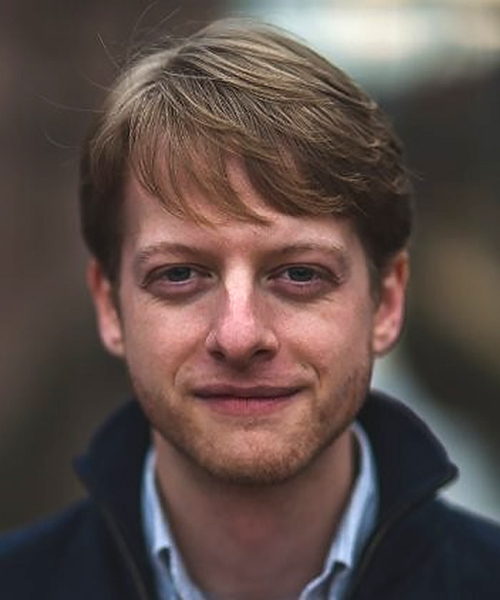
Taunton Paine
Director, Sci. Data Sharing Policy Div., Office of Sci. Policy, NIH
The NIH Policy for Data Management and Sharing: explanation of the policy and the benefit to the research community
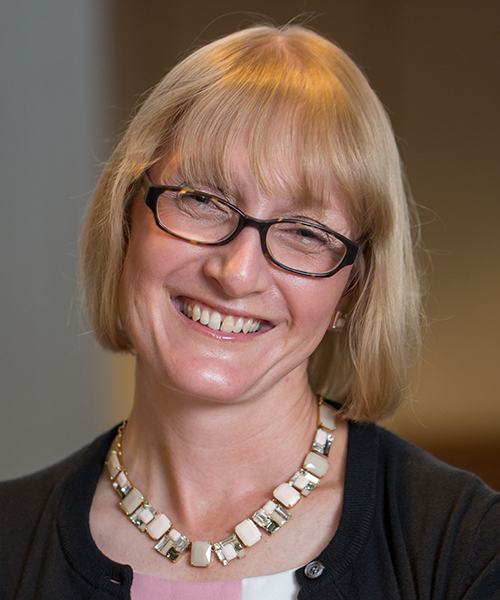
Yvette Seger
Director of Sci. Policy, Fed. of the American Soc. for Exptl. Biol. (FASEB)
FASEB DataWorks! A new initiative to support data sharing and re-use
Data are a fundamental component of the research process. Sharing that data is essential to accelerate and enhance research discoveries and to advance research findings. Central to this process, the NIH is responsible for promoting the sharing and management of scientific data to promote reproducibility and translation of research results to advance science, medicine, and public health.
This session will inform the attendees about the facts and details of the NIH Policy for Data Management and Sharing, which goes into place as a requirement for all NIH-funded investigators on January 25, 2023. A special initiative sponsored by FASEB DataWorks! will also be presented. This program has been established to support investigators in navigating the oftentimes confusing open-data landscape and to assist them in designing effective practices for data sharing. The session will end with a question-and-answer opportunity for attendees.
AAI is pleased to recognize the extraordinary professional achievements, service, and career promise of its members with the following awards and lectures.
Friday, May 6, 2022 5:00 PM Portland Ballroom 252–255
AAI Lifetime Achievement Award Presentation
Chair
- Gary A. Koretzky, Cornell Univ. and Weill Cornell Med., AAI President (2021–2022)
Award Recipient
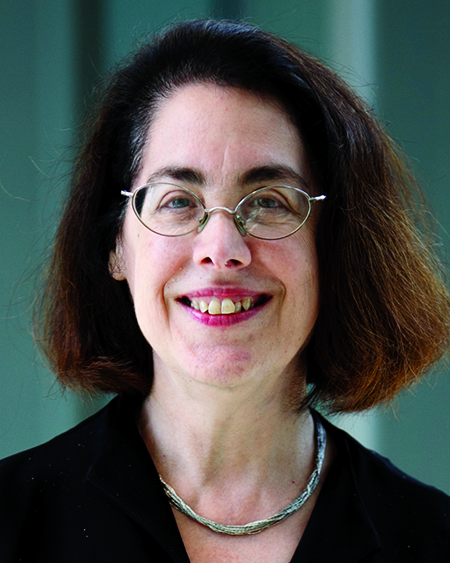
Arlene H. Sharpe
Harvard Med. Sch.
AAI President Gary A. Koretzky will introduce the awardee and present the award prior to the start of the President's Address.
The AAI Lifetime Achievement Award is the highest honor bestowed by the AAI Council upon an AAI member. This award recognizes a deserving member for a career of scientific achievement and for contributions to AAI and fellow immunologists.
Friday, May 6, 2022 5:00 PM Portland Ballroom 252–255
Distinguished Fellows of AAI Class of 2022 Acknowledgment
Chair
- Gary A. Koretzky, Cornell Univ. and Weill Cornell Med., AAI President (2021–2022)
The Distinguished Fellows of AAI annually recognizes members for distinguished careers and outstanding scientific contributions as well as their service to AAI and the immunology community. It honors active, long-term members (25 or more years) who have demonstrated one or more of the following: excellence in research accomplishment in the field of immunology; exceptional leadership to the immunology community in academia, foundations, nonprofits, industry, or government at a national or international level; notable distinction as an educator.
Meet the Distinguished Fellows of AAI Class of 2022.
AAI President Gary A. Koretzky will acknowledge the honorees prior to the start of the President's Address.
Saturday, May 7, 2022 1:00 PM – 2:30 PM Room B110–112
AAI Distinguished Service Award Presentations
Chair
- M. Michele Hogan, AAI
Award Recipients
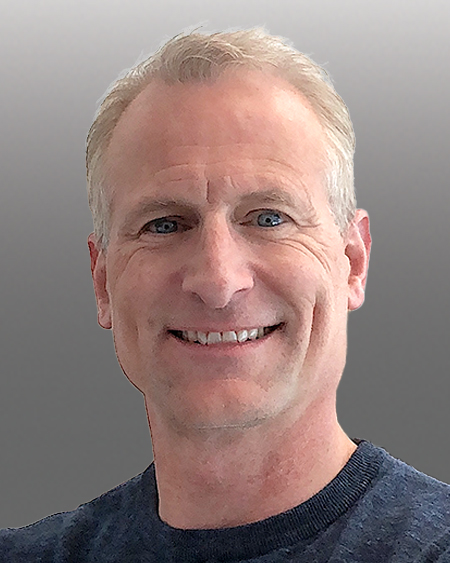
Ross Kedl
Univ. of Colorado Sch. of Med.
For outstanding service as Chair and Member of the AAI Committee on Public Affairs, 2015-2021
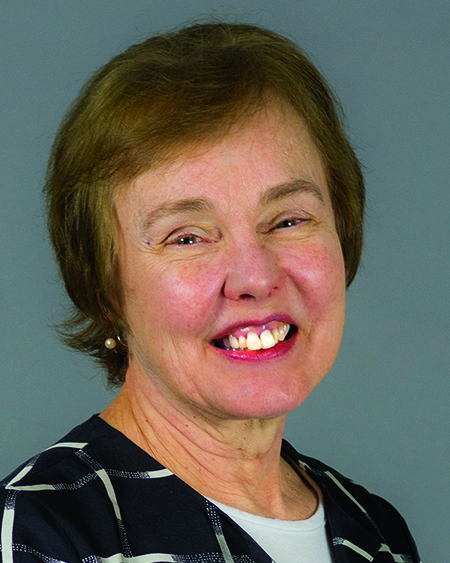
Edith M. Lord
Univ. of Rochester Sch. of Med. and Dent.
For exceptional service as AAI Secretary-Treasurer, 2015-2021
AAI CEO M. Michele Hogan will introduce the awardees and present the awards during the AAI Business Meeting.
The AAI Distinguished Service Awards recognize individuals for outstanding service to AAI and the immunology community.
Saturday, May 7, 2022 4:30 PM – 5:30 PM Portland Ballroom 252–255
AAI-BD Biosciences Investigator Award Presentation and Lecture
Generously supported by BD Biosciences
Chair
- Gary A. Koretzky, Cornell Univ. and Weill Cornell Med., AAI President (2021–2022)
Award Recipient
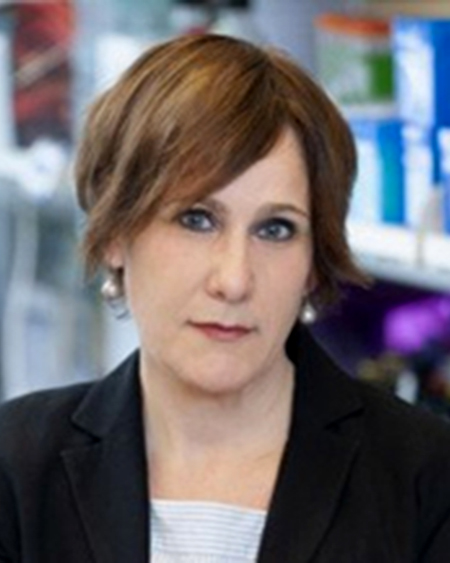
Andrea Schietinger
Mem. Sloan Kettering Cancer Ctr.
T cell differentiation and fate choice in cancer and autoimmunity
AAI President Gary A. Koretzky and Robert Balderas, Vice President of Biological Sci., BD Biosciences, will introduce the awardee and present the award immediately prior to Dr. Schietinger’s lecture.
The AAI-BD Biosciences Investigator Award recognizes an early-career investigator who has made outstanding contributions to the field of immunology.
Sunday, May 8, 2022 4:30 PM – 5:30 PM Portland Ballroom 252–255
AAI-BioLegend Herzenberg Award Presentation and Lecture
Generously supported by BioLegend
Chair
- Gary A. Koretzky, Cornell Univ. and Weill Cornell Med., AAI President (2021–2022)
Award Recipient

Christopher C. Goodnow
Garvan Inst. of Med. Res., Australia
Autoantibody control: a conceptual journey from B cell functional silencing to immune tolerance checkpoints
AAI President Gary A. Koretzky, AAI Vice President Mark M. Davis, HHMI, Stanford Univ. Sch. of Med., and Leonore A. Herzenberg, Stanford Univ. Sch. of Med., will introduce the awardee and present the award immediately prior to Dr. Goodnow’s lecture.
The AAI-BioLegend Herzenberg Award recognizes outstanding research contributions to the field of immunology in the area of B cell biology.
Sunday, May 8, 2022 6:00 PM – 7:00 PM Portland Ballroom 252–255
AAI-Thermo Fisher Meritorious Career Award Presentation and Lecture
Generously supported by Thermo Fisher Scientific
and the
2022 Distinguished Lecture
Chair
- Gary A. Koretzky, Cornell Univ. and Weill Cornell Med., AAI President (2021–2022)
Award Recipient

Katherine A. Fitzgerald
Univ. of Massachusetts Chan Med. Sch.
Regulation, initiation, and resolution of inflammation
AAI President Gary A. Koretzky and David Piper, Senior Director of Research and Development (Protein and Cell Analysis), Thermo Fisher Scientific, will introduce the awardee and present the award immediately prior to Dr. Fitzgerald’s lecture.
The AAI-Thermo Fisher Meritorious Career Award recognizes a mid-career scientist for outstanding research contributions to the field of immunology.
Monday, May 9, 2022 11:15 AM – 12:15 PM Room C123–124
AAI Vanguard Lecture
Sponsored by the AAI Minority Affairs Committee
Chair
- Tonya J. Webb, Univ. of Maryland Sch. of Med., AAI Minority Affairs Committee Chair
Speaker
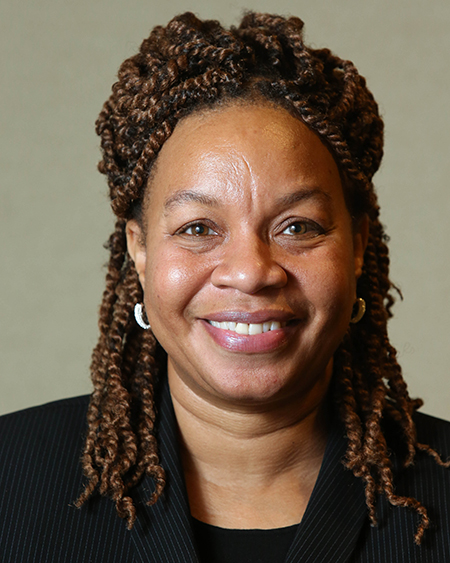
Cherié L. Butts
Biogen
Concept to approved drug: why immunologists are critical when developing new medicines
Presented by an AAI member selected by the Minority Affairs Committee for their scientific achievement and exemplary career success
Monday, May 9, 2022 12:30 PM Portland Ballroom 252–255
AAI Excellence in Mentoring Award Presentation
Chair
- Gary A. Koretzky, Cornell Univ. and Weill Cornell Med., AAI President (2021–2022)
Award Recipient
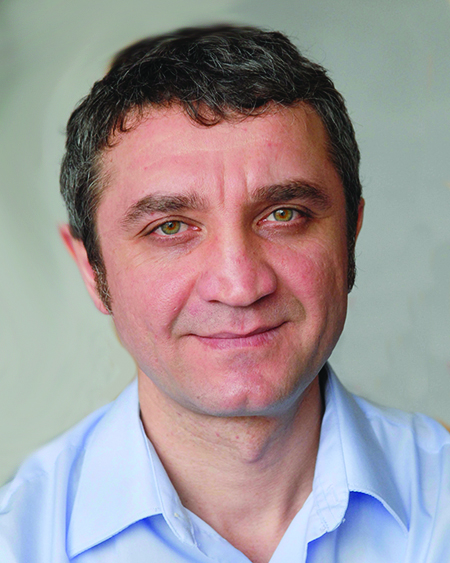
Ruslan Medzhitov
HHMI, Yale Univ. Sch. of Med.
AAI President Gary A. Koretzky and Gregory M. Barton, Univ. of California, Berkeley, will introduce the awardee and present the award prior to the start of the President’s Symposium.
The AAI Excellence in Mentoring Award recognizes exemplary career contributions to a future generation of scientists.
Monday, May 9, 2022 4:30 PM – 5:30 PM Portland Ballroom 252–255
AAI-Steinman Award for Human Immunology Research Presentation and Lecture
Chair
- Gary A. Koretzky, Cornell Univ. and Weill Cornell Med., AAI President (2021–2022)
Award Recipient
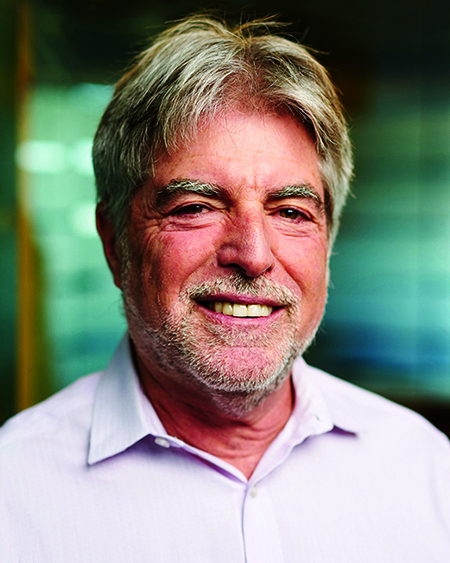
Jeffrey A. Bluestone
Univ. of California, San Francisco, and Sonoma Biotherapeutics
Immune tolerance: the long road to finding the holy grail
AAI President Gary A. Koretzky will introduce the awardee and present the award immediately prior to Dr. Bluestone’s lecture.
The AAI-Steinman Award for Human Immunology Research recognizes an individual who has made significant contributions to the understanding of immune processes underlying human disease pathogenesis, prevention, or therapy.
Trainee Abstract Awards
Hundreds of AAI members are eligible to receive Trainee Abstract Awards each year! To be eligible for these awards, individuals must be members of AAI at the time of abstract submission. Details about IMMUNOLOGY2022™ awards can be found at aai.org/Awards.
AAI committees host symposia, workshops, lectures, and events that address the most recent advances in their specialty areas of immunology research, as well as issues in public policy and career development.
Friday, May 6, 2022 2:00 PM – 4:00 PM Oregon Ballroom 204
Back to School: A Review of Four Fast-Moving Fields
Sponsored by the AAI Program Committee
Chairs
- Cathryn R. Nagler, Univ. of Chicago, AAI Program Committee Chair
- Gianna E. Hammer, Duke Univ.
Speakers
- Sarah L. Gaffen, Univ. of Pittsburgh, Epitranscriptomics
- Shane Crotty, La Jolla Inst. for Immunology, Cellular responses to mRNA vaccines
- Shruti Naik, New York Univ. Grossman Sch. of Med., Trained immunity
- Amber M. Smith, Univ. of Tennessee Hlth. Sci. Ctr., Modeling: what it can do for you
Friday, May 6, 2022 4:00 PM – 4:45 PM
New Member Reception
Sponsored by the AAI Membership Committee
By invitation only
Saturday, May 7, 2022 10:15 AM – 12:15 PM Room A105–106
ARPA-H: What You Need to Know and How It May Impact Federal Funding of Biomedical Research
Sponsored by the AAI Committee on Public Affairs
Chair
- Peter E. Jensen, Univ. of Utah Sch. of Med., AAI Committee on Public Affairs Chair
Speakers
- Tara A. Schwetz, Acting Principal Deputy Director, NIH, ARPA-H: a new paradigm for propelling use-driven, high-impact biomedical and health research
- Amy Jenkins, Program Manager, DARPA, Insights and advice from a DARPA program manager
- Amanda M. Jamieson, Associate Professor, Brown Univ., My experience as a DARPA performer
Last year, President Joe Biden formally proposed creating a new entity called the Advanced Research Projects Agency for Health (ARPA-H). ARPA-H, which is to be modeled after the Defense Advanced Research Projects Agency (DARPA), would support high-risk, high-reward research and, according to a concept paper developed by the Administration, might initially focus on “mak[ing] pivotal investments in breakthrough technologies and broadly applicable platforms, capabilities, resources, and solutions that have the potential to transform important areas of medicine and health for the benefit of all patients and that cannot readily be accomplished through traditional research or commercial activity.”
Although President Biden recommended an initial three-year budget of $6.5 billion for ARPA-H, Congress appropriated $1 billion in fiscal year 2022 to launch this new agency. Congress and the White House continue to work toward the development of legislation that will further determine how ARPA-H will operate, including how it will establish research priorities and whether it will be part of NIH or an independent entity with the Department of Health and Human Services.
This session will feature a distinguished panel of experts who will explain the vision for this new agency. They will also address critical issues about how it might operate, including how immunologists could apply for and use ARPA-H funds, and whether federal investment in ARPA-H could adversely affect funding for the regular NIH budget, including its investigator-initiated basic research portfolio. The formal presentations will be followed by an ample question-and-answer period.
Saturday, May 7, 2022 11:00 AM – 1:00 PM Room B117–119
Immunology Teaching Interest Group: Enhancing Your Immunology Teaching
Sponsored by the AAI Education Committee
Chairs
- William H. Carr, Medgar Evers Col., CUNY
- Michelle Snyder, Towson Univ.
Speakers
- Sarah B. Redmond, Radford Univ., To lab or not to lab, that is the question
- John K. Cusick, California Northstate Univ., Improving the effectiveness of combining PowerPoint presentations and review games
- Keri Csencsits-Smith, Saba Univ. Sch. of Med., Dutch Caribbean, The zombie pirate invasion: an introduction to immunology concepts
- Tatiana Barichello, Univ. of Texas Hlth. Sci. Ctr., Houston, Problem-Based Learning (PBL) approach as a tool to teach immunology
Breakout Session Leaders
- Louis B. Justement, Univ. of Alabama at Birmingham, Rebekah T. Taylor, Frostburg State Univ., and Sumali Pandey, Minnesota State Univ., Moorhead, Incorporating immunology into the undergraduate curriculum to promote interdisciplinary science education
- Kara R. Lukin, Western Governors Univ., Univ. of Colorado, Leveraging Flipgrid to drive social belonging and more durable learning in immunology courses
- Holly Turula, Western Michigan Univ. Homer Stryker MD Sch. of Med., and Timothy Bauler, Western Michigan Univ. Homer Stryker MD Sch. of Med., Using team-based learning to solidify immunology concepts
Are you looking for new ideas to enliven and improve your teaching? If so, please join us for this special interest group, which will focus on strategies that instructors can use to successfully convey immunology concepts to students at the undergraduate and graduate level. The session will explore teaching techniques through talks and structured breakout discussion groups. Current educators, new faculty, and trainees with an interest in teaching are welcome.
Saturday, May 7, 2022 12:00 PM – 2:15 PM Portland Ballroom 251
Careers Roundtables and Speed Networking Session
Sponsored by the AAI Minority Affairs Committee
Chair
- Tonya J. Webb, Univ. of Maryland Sch. of Med., AAI Minority Affairs Committee Chair
Networking skills have never been more crucial to ensure success for early/mid-career scientists, including those traditionally under-represented in biomedical research. At the session, take advantage of the opportunity to meet in small-group format with accomplished, senior immunologists and others to hear how they have handled the career challenges you now face and learn what they believe will work for you today. Then, practice networking in a relaxed environment offering a structured networking exercise and personalized feedback on communicating your scientific interests/objectives most effectively. Scientists and trainees of all backgrounds are encouraged to attend!
Registration Fee: $30 (Includes lunch)
Discussion Topics and Table Leaders
Grad Student: Finding a Mentor, Setting Sights on Postdoc Training
- Curtis J. Henry, Emory Univ. Sch. of Med.
- Gianna E. Hammer, Duke Univ. Sch. of Med.
- Beth Jirón Tamburini, Univ. of Colorado Sch. of Med.
Navigating Challenges Unique to International Graduate Students NEW!
- Craig Maynard, Univ. of Alabama at Birmingham
- Amal Amer, The Ohio State Univ.
Postdoc: Finding a Mentor, Setting Sights on a Faculty Position
- Claudia Jakubzick, Dartmouth Col.
- De’Broski R. Herbert, Univ. of Pennsylvania Sch. of Vet. Med.
- C. Henrique Serezani, Vanderbilt Univ. Med. Ctr.
- Charlotte M. Vines, Univ. of Texas, El Paso
- Jose Conejo-Garcia, Moffitt Cancer Ctr.
Junior Faculty: Preparing for Promotion and Tenure
- Harlan P. Jones, Univ. of North Texas
- Robert J. Binder, Univ. of Pittsburgh
Maintaining Research Productivity at a Primarily Undergraduate Teaching institution NEW!
- Michael M. Opata, Appalachian State Univ.
Academia or Industry: How to Decide (or Switch Sides)
- Isharat Yusuf, Gossamer Bio
- Jonathan Deane, Kumquat Biosci.
- Louis Gonzalez, Shattuck Labs
- Aliyah Weinstein, Taconic Biosci.
- Kiyomi Komori, Arena/Pfizer
Government Agency Careers
- Marta Catalfamo, Georgetown Univ.
- Swinburne Augustine, Envrn. Protection Agcy.
Non-Bench Research Science Careers: Entrepreneurship
- Tonya J. Webb, Univ. of Maryland Sch. of Med; WebbCures, IMMUNE 3D, and Screen Therapeut.
- Eduardo Davila, Univ. of Colorado Sch. of Med.
Non-Bench Research Science Careers: Nonprofits/Foundations
- Derek Haseltine, Hertz Fndn.
- Thandi Onami, Gates Fndn.
Non-Bench Research Science Careers: Research Technology
- Robert Balderas, BD Biosci.
Non-Bench Research Science Careers: Science Policy
- Lauren Gross, AAI
- Yvette Seger, FASEB
Non-Bench Research Science Careers: Scientific Publishing
- Nicole Beauchamp, AAI
Saturday, May 7, 2022 12:30 PM – 2:30 PM Room A107–109
Immunomodulation and Immunotherapy: Lessons to Improve Health
Sponsored by the AAI Veterinary Immunology Committee
Chairs
- Janice C. Telfer, Univ. of Massachusetts, Amherst, AAI Veterinary Immunology Committee Chair
- Renukaradhya J. Gourapura, The Ohio State Univ. Col. of Food Agri. & Envrn. Sci.
Speakers
- Jacques Robert, Univ. of Rochester Med. Ctr., Xenopus as nonmammalian experimental organism for investigating host interactions with non-TB mycobacteria
- Alix K. Berglund, North Carolina State Univ. Col. of Vet. Med., Immunomodulation by mesenchymal stem cells: mechanisms, clinical implications, and future directions
- Brian P. Dolan, Oregon State Univ., Modulation of the immune system in wild animals
- Renukaradhya J. Gourapura, The Ohio State Univ. Col. of Food Agri. & Envrn. Sci., Nature of vaccine delivery vehicle determines the Th1- and Th2-based immunity to intranasal influenza vaccine in a pig model
Approaches to improve health via immunomodulation or immunotherapy cross into both human and veterinary medicine. Non-murine animal models, advances in vaccine formulations, and therapeutic modalities in domestic animals have translational applications for improving human health. This symposium will highlight comparative immunologic models, the clinical implications of using stem cells as immunomodulators, insight on novel therapeutic approaches for animal health, and immunomodulation approaches to decrease infectious disease. Collectively, the talks presented in this symposium will showcase the translational cohesion between veterinary and human health to support the current “One Health” research concept.
Saturday, May 7, 2022 7:00 PM – 9:00 PM Room A105–106
Careers in Biotech: Panel Discussion and Networking
Sponsored by the AAI Education Committee
Chair
- H. Kiyomi Komori, Arena Pharma./Pfizer
Panelists
- Richard Boismenu, Independent Consultant
- Yi Ting Koh, Senior Director, Immunology Discovery, Eli Lilly and Co.
- Joseph Kuo, Research Scientist, Arena Pharma./Pfizer
- Erica L. Stone, Vice President, Oncology, GigaGen
Many opportunities exist in industry for scientists with advanced degrees. There are positions in laboratory research, program management, business development, regulatory affairs, clinical trials oversight, medical liaison, and more. This panel features scientists employed in a variety of positions in industry discussing their career paths and the skills required for success in each. Following the panel discussion, enjoy casual conversation with the speakers and other scientists from industry at a networking reception.
Sunday, May 8, 2022 8:00 AM – 10:00 AM Room A107–109
NextGen Transformative Immunologic Therapies for Human Disease
Sponsored by the AAI Clinical Immunology Committee
Chairs
- Jennifer H. Anolik, Univ. of Rochester Med. Ctr., AAI Clinical Immunology Committee Chair
- Erica L. Stone, GigaGen
Speakers
- Jeffrey S. Miller, Univ. of Minnesota, Twin Cities, The next generation of NK cell therapeutics to treat cancer
- Stephanie K. Dougan, Dana-Farber Cancer Inst., Inducing and sustaining tumor-specific memory CD8+ T cells
- Samik Basu, Cabaletta Bio, Adoptive immunotherapy for MuSK subtype myasthenia gravis
- S. Alice Long, Benaroya Res. Inst., Treg modulation by IL-2 mutein therapy
Understanding the underlying mechanisms of pathology for disease states has allowed for both the manipulation and targeting of specific aspects of the immune response to alleviate, or in some instances cure, immune and non-immune mediated diseases. But how does basic immunology research evolve into potential therapies, and how do those therapies get developed? And what are the new, up-and-coming therapies currently in development? In this session, four speakers will highlight therapies that are in the pipeline for clinical use and tell their stories, from target identification to their use in clinical trials.
Sunday, May 8, 2022 10:15 AM – 12:15 PM Room A105–106
Vaccine Acceptance: Lessons from the Past and Tools for the Future
Sponsored by the AAI Committee on Public Affairs
Chair
- Peter E. Jensen, Univ. of Utah Sch. of Med., AAI Committee on Public Affairs Chair
Speakers
- Richard M. Carpiano, Professor of Public Policy, Univ. of California, Riverside, Why people vaccinate: social, behavioral, and policy considerations
- Akiko Iwasaki, HHMI, Sterling Professor of Immunobiology and of Molecular, Cellular and Developmental Biology, Yale Sch. of Med., Disinformation and information that fuel vaccine hesitancy
Vaccines have long been one of the most effective tools to combat infectious diseases, saving countless lives since the development of the first vaccine against smallpox in the late 18th century. Because of vaccines, smallpox has been eradicated worldwide, polio has been eliminated in the United States, and other deadly diseases including rubella, pertussis, and measles are now preventable. Despite this evidence, concerns about the safety or efficacy of vaccines persist. The problem of waning vaccine acceptance has only been exacerbated by the COVID-19 pandemic. Although scientists have developed remarkably safe and effective vaccines against COVID-19 in record time, and several have been approved by the U.S. Food and Drug Administration, far too many eligible Americans remain unvaccinated. Concerns about vaccine safety and efficacy, widespread misinformation and disinformation about vaccines, and the politicization of public health recommendations have hampered the acceptance of these lifesaving tools, posing an increasingly serious threat to individual lives and global public health.
This session will feature experts who will discuss lessons learned about vaccine acceptance, the challenges that lie ahead, and how we as members of the broader biomedical research community can effectively communicate with the public. A question-and-answer period will follow the formal presentations.
Sunday, May 8, 2022 12:30 PM – 2:00 PM Portland Ballroom 251
Careers in Science Lecture and Roundtables
Sponsored by the AAI Education Committee and AAI Committee on the Status of Women
Generously supported by 10x Genomics
Chair
- Laura A. Solt, Scripps Res., AAI Committee on the Status of Women Chair
Speaker
- Gwendalyn J. Randolph, Washington Univ. Sch. of Med. in St. Louis, Becoming a confident scientist and embracing your authentic self
At this popular session, attendees will have the opportunity to meet with experienced scientists to explore specific career issues important to today's scientists. Gain insights into issues you are confronting in your own career. Topics include international opportunities in science, succeeding in graduate school, tips on grant writing, considerations for scientists in M.D.-Ph.D. careers, and exciting careers beyond the bench. Topics include building productive mentor/mentee relationships; overcoming self-doubt; and tackling gender biases in recruitment, research, and leadership; and navigating work/life issues, such as balancing careers with family and transitioning from specific career stages, which may be relevant to any work environment (academic research, biotech industry, governmental agencies, non-profit). Don’t miss this great opportunity!
Discussion Topics and Table Leaders
New PI (mentoring effectively, recruiting students and postdocs, preparing for promotion, early career self-promotion)
- Irene Salinas, Univ. of New Mexico, and Qi Yang, Rutgers Univ.
- Robin Stephens, Univ. of Texas Med. Br., and Isabella Rauch, Oregon Hlth. Sci. Univ.
Succeeding in Graduate School
- Laura Solt, Scripps Res., and Maureen McGargill, St. Jude Children's Res. Hosp.
Graduate Student to Postdoc
- Daniel Abate-Daga, Moffitt Cancer Ctr., and Mireia Guerau-de-Arellano, The Ohio State Univ. Col. of Med.
- Juliet Morrison, Univ. of California, Riverside, and Natalie Steinel, Univ. of Massachusetts, Lowell
Postdoc to PI
- Angela Rasmussen, Univ. of Saskatchewan, Canada, and Jose Guevara, Moffit Cancer Ctr.
- Gianna Hammer, Duke Univ. Sch. of Med., and Lisa Denzin, Rutgers Univ.
Work/Life Balance
- Shari Pilon-Thomas, Moffit Cancer Ctr., and Laura Santambrogio, Englander Inst. of Precision Med. and Weill Cornell Med.
Building Networking Skills
- Yina Huang, Geisel Sch. of Med. at Dartmouth, and Jennifer Grier, Univ. of South Carolina Sch. or Med., Greenville
Biotech and Industry
- Rea Dabelic, 10x Genomics, and Sadiye Rieder, Horizon Therapeut.
- Kiyomi Komori, Arena Pharma., and Agata Bartczak, Horizon Therapeut.
- Yue Liu, Ab Studio, and Louis Gonzalez, Shattuck Labs
- Shaoquan Ji, BioTimes, and Karsten Sauer, Repertoire Immune Medicines
- Aliyah Weinstein, Taconic, and Christie Mortales, Neoleukin Therapeut.
- Seng-Lai (Thomas) Tan, Immunitas Therapeut., and Yibing Wang, BeiGene (Shanghai) Res.
- Dwight Morrow, Rubius Therapeut., and Bo Lin, Nexcelom Biosci.
Embracing Your Authentic Self and Becoming a Confident Scientist
- Gwen Randolph, Washington Univ. Sch. of Med. in St. Louis, and Sarah Gaffen, Univ. of Pittsburgh
Tackling Gender Biases in Recruitment, Research, and Leadership
- Dorina Avram, Moffitt Cancer Ctr., and Marion Pepper, Univ. of Washington
Careers in Government Agencies
- Swinburne Augustine, Envrn. Protection Agcy., and Michelle Robillard, Envrn. Protection Agcy.
Scientific Publishing
- Jose Conejo-Garcia, Moffitt Cancer Ctr., and Courtney Malo, Sci. Translational Med.
Opportunities for Scientists in Non-profits/Foundations
- E’Lissa Flores, Hlth. and Envrn.Sci. Inst.
Careers in Science Policy
- Lauren Gross, AAI
Grant Writing for PIs
- Meera Nair, Univ. of California, Riverside, and Jie Sun, Univ. of Virginia Sch. of Med.
Grant Writing: Fellowships
- Paulo Rodriguez, Moffit Cancer Ctr., and Melissa Brown, Northwestern Univ. Feinberg Sch. of Med.
Research from M.D.-Ph.D. Perspective / The Physician Scientist
- Maureen Su, Univ. of California, Los Angeles
Careers in Veterinary Immunology
- Mercedes Gonzalez-Juarrero, Colorado State Univ. Col. of Vet. Med. and Biomed. Sci,and Brina Lopez, Midwestern Univ.
International Opportunities
- Weishan Huang, Louisiana State Univ. Sch. of Vet. Med., and Henrique Borges da Silva, Mayo Clin.
- Damian Maseda, Univ. of Pennsylvania, and Jacques Robert, Univ. of Rochester Med. Ctrr.
Building Productive Mentor/Mentee Relationships
- Virginia Shapiro, Mayo Clin., and Edith Porter, California State Univ., Los Angeles
Balancing Teaching Responsibilities with Research NEW!
- Julie Jameson, California State Univ., San Marcos, and Michelle Swanson-Mungerson, Midwestern Univ.
How to Negotiate for Better Self-promotion
- Keke Fairfax, Univ. of Utah Sch. of Med., and Henrique Serezani, Vanderbilt Univ. Med. Ctr.
Sunday, May 8, 2022 12:30 PM – 2:30 PM Room C123–124
Scientific Communication in a Fast-Paced World
Sponsored by the AAI Publications Committee
Chairs
- Daniel J. Campbell, Benaroya Res. Inst., AAI Publications Committee Chair
- Eugene M. Oltz, The Ohio State Univ. Col. of Med., Editor-in-Chief, The Journal of Immunology
Speakers
- Laurie E. Harrington, Univ. of Alabama at Birmingham, Writing manuscripts with trainees
- Jessica A. Hamerman, Benaroya Res. Inst., Responding to reviewers
- Mark H. Kaplan, Indiana Univ. Sch. of Med., Editor-in-Chief, ImmunoHorizons, Why you should publish in ImmunoHorizons—and The JI too!
This session will feature a moderated panel discussion on key topics in publishing: open access, fairness in peer review, preprints, and more!
Sunday, May 8, 2022 3:45 PM – 5:45 PM Room C123–124
Neonatal Immunity and Neuroimmunology
Co-sponsored by the AAI Minority Affairs Committee and Black in Immuno
Chairs
- Michael M. Opata, Appalachian State Univ., AAI Minority Affairs Committee Member
- Dionna W. Williams, Johns Hopkins Univ. Sch. of Med.
Speakers
- Michael M. Opata, Appalachian State Univ., Neonatal immunity to malaria using a mouse model
- Dionna W. Williams, Johns Hopkins Univ. Sch. of Med., Beyond GPCR recycling: β-arrestin as a neuroprotective modulator of innate immune responses
- Olivia Solomon, Univ. of Texas Med. Br., A window into experimental cerebral malaria reveals dynamics of hyper-coagulation, BBB disruption, and microgliosis
- Shevon N. Alexander, Univ. of Texas, Dallas, Sex differences in alcohol-induced behavioral sensitization
- E. Evonne Jean, Univ. of Pennsylvania Perelman Sch. of Med, Understanding the mechanisms of immunity against percutaneous infection by a skin-penetrating helminth
This session will showcase innovative research in neuroimmunology being conducted in laboratories led by prominent Black immunologists. Presentations by first authors of recently published studies in the fast-moving field of neuroimmunology will highlight the work of rising scientists and trainees from historically underrepresented groups. Given the success of these immunologists, these talks implore us to implement pathways that provide supportive and vibrant environments that continue to foster the efforts of these outstanding young investigators.
Monday, May 9, 2022 11:15 AM – 12:15 PM Room C123–124
AAI Vanguard Lecture
Sponsored by the AAI Minority Affairs Committee
Chair
- Tonya J. Webb, Univ. of Maryland Sch. of Med., AAI Minority Affairs Committee Chair
Speaker

Cherié L. Butts
Biogen
Concept to approved drug: why immunologists are critical when developing new medicines
Presented by an AAI member selected by the Minority Affairs Committee for their scientific achievement and exemplary career success
Each year guest societies, government agencies, and other research organizations join the scientific program to bring unique perspectives on basic research and clinical issues influencing and advancing the field. AAI has been honored to have program partners from many US and international societies, as well as government agencies that both fund and carry out stellar research programs. Current session partners are listed below:
Sunday, May 8, 2022 12:30 PM – 2:30 PM Room A105–106
American Society of Transplantation (AST) Symposium
Cutting-Edge Research in Transplantation Tolerance, Rejection, and Infection
Chairs
- Andrew D. Wells, Univ. of Pennsylvania Perelman Sch. of Med.
- Anita S. Chong, Univ. of Chicago
Speakers
- Xunrong Luo, Duke Univ. Sch. of Med., Single-cell transcriptomics of kidney transplants reveals a myeloid cell pathway for transplant rejection
- Andrew D. Wells, Univ. of Pennsylvania Perelman Sch. of Med., Molecular and genetic mechanisms regulating T cell tolerance
- Paige M. Porrett, Univ. of Alabama at Birmingham, Exhaustion circuits program maternal CD8+ T cell hypofunction in pregnancy and transplantation
- Jonathan S. Maltzman, Stanford Univ., Memory inflation after CMV
Sunday, May 8, 2022 10:15 AM – 12:15 PM Room A107–109
Canadian Society for Immunology (CSI) Symposium
Mesenchymal—Immune Crosstalk in Fibrotic Disease
Chairs
- Sonya A. MacParland, Univ. of Toronto, Canada
- Simon A. Hirota, Univ. of Calgary, Canada
Speakers
- Simon A. Hirota, Univ. of Calgary, Canada, Microbial metabolite sensing shapes the mesenchyme to restrain intestinal inflammation and fibrosis
- Sonya A. MacParland, Univ. of Toronto, Canada, Liver macrophage populations in fibrosis and tissue regeneration
- Carolyn J. Baglole, McGill Univ., Canada, Aryl hydrocarbon receptor and fibroblast–neutrophil interactions in chronic obstructive pulmonary disease
- Kelly M. McNagny, Univ. of British Columbia, Canada, Innate lymphoid cells in tissue fibrosis
Saturday, May 7, 2022 10:15 AM – 12:15 PM Room A107–109
Chinese Society of Immunology, Taiwan (CSIT) Symposium
Metabolic Instruction of Immunity
Chairs
- Huey-Kang Sytwu, Nat. Inst. of Infectious Diseases and Vaccinology, Nat. Hlth. Res. Inst., Taiwan
- Huang-Yu Yang, Chang Gung Mem. Hosp., Taiwan
Speakers
- Huang-Yu Yang, Chang Gung Mem. Hosp., Taiwan, Metabolic immunomodulation for autoimmune disease
- Chia-Lin Hsu, Nat. Yang Ming Chiao Tung Univ., Linkou Branch, Taiwan, Multiomic analyses reveal the central role of the pentose phosphate pathway in resident thymic macrophages to cope with efferocytosis-associated stress
- Huai-Chia Chuang, Immunology Res. Ctr., Nat. Hlth. Res. Inst., Taiwan, BPI overexpression suppresses Treg differentiation and induces exosome-mediated inflammation in systemic lupus erythematosus
- Chao-Yuan Hsu, Nat. Defense Med. Ctr., Taiwan, T cell-restricted c-Maf SUMOylation deficiency shapes gut microbiota-modulated metabolomic profiling to ameliorate colitis
Saturday, May 7, 2022 12:30 PM – 2:30 PM Room C123–124
German Society for Immunology (DGfI) Symposium
Antigen-Specific T Cell Responses to SARS-CoV-2
Chairs
- Martina Sester, Universität des Saarlandes, Germany
- Carsten Watzl, Leibniz Institut für Arbeitsforschung an der TU Dortmund, Germany
Speakers
- Claudia Giesecke-Thiel, Max Planck Inst. for Molecular Genetics, Germany, CD4+ T cell responses and the role of pre-existing immunity for COVID-19 and SARS-CoV-2 infection
- Gabriela Rios Martini, Universitätsklinikum Schleswig-Holstein, Germany, The role of pre-existing immunity and age in CD4+ T cell responses to SARS-CoV-2 infection and vaccination
- Martina Sester, Universität des Saarlandes, Germany, T cell responses to SARS-CoV-2 infection and vaccination
- Maike Hofmann, Universitätsklinikum Freiburg, Germany, CD8+ T cell responses to SARS-CoV-2 infection
Sunday, May 8, 2022 10:15 AM – 12:15 PM Room B110–112
International Complement Society (ICS) Symposium
Complement: The Road Less Traveled
Chairs
- Viviana P. Ferreira, Univ. of Toledo
- Michael V. Holers, Univ. of Colorado Sch. of Med.
Speakers
- Michael V. Holers, Univ. of Colorado, Sch. of Med., Stage- and context-dependent roles for complement in rheumatoid arthritis evolution
- Jessy J. Alexander, Univ. at Buffalo, SUNY, Intracellular complement control and kidney disease
- Jeanne T. Paz, Inst. of Neurological Dis. and Univ. of California, San Francisco, New roles for complement during brain injury
- Mihalis S. Lionakis, NIAID, NIH, New insights into complement’s role in the control of fungal disease
Sunday, May 8, 2022 3:45 PM – 5:45 PM Room B110–112
International Cytokine and Interferon Society (ICIS) Symposium
Rising Stars of Cytokine Biology
Chairs
- Sarah L. Gaffen, Univ. of Pittsburgh
- Rebecca C. Coll, Queen’s Univ. Belfast, United Kingdom
Speakers
- Rebecca C. Coll, Queen’s Univ. Belfast, United Kingdom, Harnessing the power of NLRP3—pharmacological strategies for inhibition and activation of the inflammasome
- Shruti Naik, Grossman Sch. of Med., Immune-epithelial crosstalk in tissue repair
- Fiachra Humphries, Univ. of Massachusetts Chan Med. Sch., Therapeutic modulation of STING
- Jakob von Moltke, Univ. of Washington, Small intestinal tuft cells: sentinels and effectors of type 2 immunity
Monday, May 9, 2022 3:45 PM – 5:45 PM Room B110–112
International Society of Developmental and Comparative Immunology (ISDCI) Symposium
Insights into Immune Evolution from Comparative Immune Approaches
Chairs
- Ayelet Voskoboynik, Stanford Med. and Hopkins Marine Station
- Michael F. Criscitiello, Texas A&M Univ.
Speakers
- Ayelet Voskoboynik, Stanford Med. and Hopkins Marine Station, Transplantation reactions in Botryllus schlosseri: co-evolution of stem cells and immunity
- Hanover Matz, Univ. of Maryland, Baltimore, B cell selection sites in the nurse shark spleen may represent evolutionary precursors of mammalian germinal centers
- Daniel R. Barreda, Univ. of Alberta, Canada, Fever as an ancient modulator of immune function
- Michael F. Criscitiello, Texas A&M Univ., Natural history of immunoglobulin surrogate light chains and the heavy chain third complementarity determining region
Saturday, May 7, 2022 8:00 AM – 10:00 AM Oregon Ballroom 204
International Society of Neuroimmunology (ISNI) Symposium
Neuroimmune Interactions in the CNS and Beyond
Chairs
- Francisco J. Quintana, Brigham and Women’s Hosp. and Harvard Med. Sch.
- Anna V. Molofsky, Univ. of California, San Francisco
Speakers
- Francisco J. Quintana, Brigham and Women’s Hosp. and Harvard Med. Sch., Metabolic control of CNS inflammation and neurodegeneration
- Anna V. Molofsky, Univ. of California, San Francisco, Type I interferon-responsive microglia in brain development
- Gregory Sonnenberg, Weill Cornell Med., Innate lymphoid cell regulation of neuroinflammation
- Marco Colonna, Washington Univ. Sch. of Med. in St. Louis, The lymphopoietic niche at the CNS border
- Carla Rothlin, Yale Univ., TAMpering with memories
Monday, May 9, 2022 3:45 PM – 5:45 PM Room A107–109
Korean Association of Immunologists (KAI) and Association of Korean Immunologists in America (AKIA) Symposium
Driving Forces of Humoral Immunity and Pathology
Chairs
- Sang-Il Lee, Gyeongsang Nat. Univ. Hosp., South Korea
- Woong-Kyung Suh, Montreal Clin. Res. Inst., Canada
Speakers
- You Jeong Lee, Seoul Nat. Univ., South Korea, Thymic plasma cells secrete natural IgE and promote food anaphylaxis by enhancing mast cell survival
- Cheong-Hee Chang, Univ. of Michigan, The role of iron homeostasis for naïve T cell survival and maintenance
- Sun Jung Kim, Feinstein Inst. of Med. Res., Increased mitochondrial metabolism is required for immunologic function in age-associated B cells
- Ji Eun Oh, Korea Advanced Inst. of Sci. and Tech., South Korea, Humoral immunity in different mucosal systems
Monday, May 9, 2022 10:15 AM – 12:15 PM Oregon Ballroom 204
National Institute of Allergy and Infectious Diseases (NIAID), NIH Symposium
Computational Modeling: Novel Insights into Immunity to Infections or Vaccines
Chairs
- Veronika I. Zarnitsyna, Emory Univ.
- Frederick A. Matsen IV, Fred Hutch Cancer Res. Ctr.
Speakers
- Veronika I. Zarnitsyna, Emory Univ., Waning of protective immunity after viral infection and vaccination
- Frederick A. Matsen IV, Fred Hutch Cancer Res. Ctr., Mechanistic insights about V(D)J recombination from statistical inference on high-throughput T cell receptor data
- Emily R. Miraldi, Cincinnati Children’s Hosp. Med. Ctr., Dynamic gene regulatory network models of human response to influenza virus
- Shannon M. Miller, Inimmune Corp. and Univ. of Montana, Vaccine adjuvant comparison: building a functional response database for computational modeling
Sunday, May 8, 2022 8:00 AM – 10:00 AM Oregon Ballroom 204
National Institute on Aging (NIA), NIH Symposium
Role of the Immune System in Neuroinflammation and Neurodegenerative Diseases
Chairs
- Rebecca Fuldner, NIA, NIH
- Katrin I. Andreasson, Stanford Med.
Speakers
- Jonathan Kipnis, Washington Univ. Sch. of Med. in St. Louis, Surprising immune activities at brain’s borders
- Katrin I. Andreasson, Stanford Med., Immune-metabolic mechanisms of cognitive decline in aging
- Adrian Liston, Cambridge Univ., United Kingdom, Using brain regulatory T cells to prevent neurodegeneration
- Elizabeth M. Bradshaw, Columbia Univ., Genetics of late-onset Alzheimer’s disease: a microglia story
Saturday, May 7, 2022 12:30 PM – 2:30 PM Oregon Ballroom 204
Society for Immunotherapy of Cancer (SITC) Symposium
Understanding the Tumor-Reactive T Cell Repertoire in Cancer Patients
Chairs
- Andrew D. Weinberg, Earle A. Chiles Res. Inst., Providence Portland Med. Ctr.
- Paul F. Robbins, NCI, NIH
Speakers
- Andrew D. Weinberg, Earle A. Chiles Res. Inst., Providence Portland Med. Ctr., Identifying tumor-reactive CD8+ TIL in patients with solid malignancies: clinical implications
- Kathryn E. Yost, Whitehead Inst., Clonal dynamics of tumor-infiltrating T cells in response to checkpoint blockade immunotherapy
- Alena Gros, Vall d'Hebron Inst. of Oncology, Spain, Harnessing the personalized antitumor T cell response to treat cancer
- Paul F. Robbins, NCI, NIH, Isolating and characterizing neo-antigen reactive T cells in patients with solid tumors
Monday, May 9, 2022 10:15 AM – 12:15 PM Room B110–112
Society for Mucosal Immunology (SMI) Symposium
Host–Microbiota Interactions at Mucosal Barriers
Chairs
- Theresa Alenghat, Cincinnati Children’s Hosp. Med. Ctr.
- Lauren A. Zenewicz, Univ. of Oklahoma Hlth. Sci. Ctr.
Speakers
- Irene Salinas, Univ. of New Mexico, From water to land: evolution of mucosal immune systems in vertebrates
- Timothy W. Hand, UPMC Children’s Hosp. of Pittsburgh,, Immune responses to microbiota colonization of the intestine
- Theresa Alenghat, Cincinnati Children’s Hosp. Med. Ctr., Regulation of the host–microbiota relationship
- Mariana X. Byndloss, Vanderbilt Univ. Med. Ctr., Disruption of microbiota and intestinal epithelial interactions as a key driver of noncommunicable diseases
Saturday, May 7, 2022 3:45 PM – 5:45 PM Room A107–109
Society for Natural Immunity (SNI) Symposium
NK Cells in Infection—New Developments
Chairs
- Cynthia E. Dunbar, NHLBI, NIH
- Aimee M. Beaulieu, Rutgers New Jersey Med. Sch.
Speakers
- Cynthia E. Dunbar, NHLBI, NIH, NK cell dynamics during CMV infection in primates
- Quirin Hammer, Karolinska Inst., Sweden, Missing self responses of NK cells against SARS-CoV-2
- Aimee M. Beaulieu, Rutgers New Jersey Med. Sch., Epigenetic regulation of NK cell development and function in mice
- Mario Witkowski, Charité – Universitätsmedizin Berlin, Germany, Regulation of NK cell responses during COVID-19
IMMUNOLOGY2022™ provides a wide range of sessions to support the career development of students, postdoctoral fellows, and faculty.
AAI also sponsors a Jobs Board during the meeting.
Saturday, May 7, 2022 9:00 AM – 10:00 AM Room B117–119
How to Convert Your CV into a Résumé
Chair
- Mary T. Litzinger, AAI
Speaker
- Derek J. Haseltine, Hertz Fndn.
For anyone seeking a job outside of academe, how you present yourself on paper is critical. A well-prepared résumé can make all the difference in securing that interview. This session will focus on the important elements of a professional résumé, the differences between a résumé and the standard academic curriculum vitae, and the information needed to make a good impression. Small breakout sessions for individual consulting will follow. Bring your CV!
Saturday, May 7, 2022 11:00 AM – 1:00 PM Room B117–119
Immunology Teaching Interest Group: Enhancing Your Immunology Teaching
Sponsored by the AAI Education Committee
Chairs
- William H. Carr, Medgar Evers Col., CUNY
- Michelle Snyder, Towson Univ.
Speakers
- Sarah B. Redmond, Radford Univ., To lab or not to lab, that is the question
- John K. Cusick, California Northstate Univ., Improving the effectiveness of combining PowerPoint presentations and review games
- Keri Csencsits-Smith, Saba Univ. Sch. of Med., Dutch Caribbean, The zombie pirate invasion: an introduction to immunology concepts
- Tatiana Barichello, Univ. of Texas Hlth. Sci. Ctr., Houston, Problem-Based Learning (PBL) approach as a tool to teach immunology
Breakout Session Leaders
- Louis B. Justement, Univ. of Alabama at Birmingham, Rebekah T. Taylor, Frostburg State Univ., and Sumali Pandey, Minnesota State Univ., Moorhead, Incorporating immunology into the undergraduate curriculum to promote interdisciplinary science education
- Kara R. Lukin, Western Governors Univ., Univ. of Colorado, Leveraging Flipgrid to drive social belonging and more durable learning in immunology courses
- Holly Turula, Western Michigan Univ. Homer Stryker MD Sch. of Med., and Timothy Bauler, Western Michigan Univ. Homer Stryker MD Sch. of Med., Using team-based learning to solidify immunology concepts
Are you looking for new ideas to enliven and improve your teaching? If so, please join us for this special interest group, which will focus on strategies that instructors can use to successfully convey immunology concepts to students at the undergraduate and graduate level. The session will explore teaching techniques through talks and structured breakout discussion groups. Current educators, new faculty, and trainees with an interest in teaching are welcome.
Saturday, May 7, 2022 12:00 PM – 2:15 PM Portland Ballroom 251
Careers Roundtables and Speed Networking Session
Sponsored by the AAI Minority Affairs Committee
Chair
- Tonya J. Webb, Univ. of Maryland Sch. of Med., AAI Minority Affairs Committee Chair
Networking skills have never been more crucial to ensure success for early/mid-career scientists, including those traditionally under-represented in biomedical research. At the session, take advantage of the opportunity to meet in small-group format with accomplished, senior immunologists and others to hear how they have handled the career challenges you now face and learn what they believe will work for you today. Then, practice networking in a relaxed environment offering a structured networking exercise and personalized feedback on communicating your scientific interests/objectives most effectively. Scientists and trainees of all backgrounds are encouraged to attend!
Registration Fee: $30 (Includes lunch)
Discussion Topics and Table Leaders
Grad Student: Finding a Mentor, Setting Sights on Postdoc Training
- Curtis J. Henry, Emory Univ. Sch. of Med.
- Gianna E. Hammer, Duke Univ. Sch. of Med.
- Beth Jirón Tamburini, Univ. of Colorado Sch. of Med.
Navigating Challenges Unique to International Graduate Students NEW!
- Craig Maynard, Univ. of Alabama at Birmingham
- Amal Amer, The Ohio State Univ.
Postdoc: Finding a Mentor, Setting Sights on a Faculty Position
- Claudia Jakubzick, Dartmouth Col.
- De’Broski R. Herbert, Univ. of Pennsylvania Sch. of Vet. Med.
- C. Henrique Serezani, Vanderbilt Univ. Med. Ctr.
- Charlotte M. Vines, Univ. of Texas, El Paso
- Jose Conejo-Garcia, Moffitt Cancer Ctr.
Junior Faculty: Preparing for Promotion and Tenure
- Harlan P. Jones, Univ. of North Texas
- Robert J. Binder, Univ. of Pittsburgh
Maintaining Research Productivity at a Primarily Undergraduate Teaching institution NEW!
- Michael M. Opata, Appalachian State Univ.
Academia or Industry: How to Decide (or Switch Sides)
- Isharat Yusuf, Gossamer Bio
- Jonathan Deane, Kumquat Biosci.
- Louis Gonzalez, Shattuck Labs
- Aliyah Weinstein, Taconic Biosci.
- Kiyomi Komori, Arena/Pfizer
Government Agency Careers
- Marta Catalfamo, Georgetown Univ.
- Swinburne Augustine, Envrn. Protection Agcy.
Non-Bench Research Science Careers: Entrepreneurship
- Tonya J. Webb, Univ. of Maryland Sch. of Med; WebbCures, IMMUNE 3D, and Screen Therapeut.
- Eduardo Davila, Univ. of Colorado Sch. of Med.
Non-Bench Research Science Careers: Nonprofits/Foundations
- Derek Haseltine, Hertz Fndn.
- Thandi Onami, Gates Fndn.
Non-Bench Research Science Careers: Research Technology
- Robert Balderas, BD Biosci.
Non-Bench Research Science Careers: Science Policy
- Lauren Gross, AAI
- Yvette Seger, FASEB
Non-Bench Research Science Careers: Scientific Publishing
- Nicole Beauchamp, AAI
Saturday, May 7, 2022 7:00 PM – 9:00 PM Room A105–106
Careers in Biotech: Panel Discussion and Networking
Sponsored by the AAI Education Committee
Chair
- H. Kiyomi Komori, Arena Pharma./Pfizer
Panelists
- Richard Boismenu, Independent Consultant
- Yi Ting Koh, Senior Director, Immunology Discovery, Eli Lilly and Co.
- Joseph Kuo, Research Scientist, Arena Pharma./Pfizer
- Erica L. Stone, Vice President, Oncology, GigaGen
Many opportunities exist in industry for scientists with advanced degrees. There are positions in laboratory research, program management, business development, regulatory affairs, clinical trials oversight, medical liaison, and more. This panel features scientists employed in a variety of positions in industry discussing their career paths and the skills required for success in each. Following the panel discussion, enjoy casual conversation with the speakers and other scientists from industry at a networking reception.
Sunday, May 8, 2022 10:15 AM – 11:15 AM Room B117–119
Interviewing for a Job
Chair
- Mary T. Litzinger, AAI
Speaker
- Derek J. Haseltine, Hertz Fndn.
This session will focus on tips and techniques to help you successfully navigate the interview process. Emphasis will be on how to present yourself in the best possible light. You will also learn how to respond to unexpected questions. This session is open to anyone but is especially intended for student and postdoctoral attendees.
Sunday, May 8, 2022 12:30 PM – 2:30 PM Room A107–109
NIH Grants Workshop: Demystifying the Grant Application Submission, Review, and Funding Processes
Chair
- Deborah L. Hodge, NIAID, NIH
Panelists
- Joseph J. Breen, NIAID, NIH
- Deborah L. Hodge, NIAID, NIH
- Michelle M. Arnold, CSR, NIH
- Audrey Lau, CSR, NIH
This workshop will provide participants with an overview of NIH grant submission, assignment, review, and funding opportunities. Emphasis will be given to identification of the most appropriate funding agencies and mechanisms available through NIH, how to make an application “reviewer friendly,” and other strategies that contribute to applications that succeed in obtaining research funding.
The workshop will also provide information on how to understand the peer review system, which is essential to competing successfully for funding, with a focus on recent changes to the review process. NIH review and program staff will provide a broad array of expertise and encourage questions from seminar participants. This workshop is open to anyone interested in learning more about preparing an NIH grant application and obtaining NIH funding. Trainees and independent investigators are welcome.
Sunday, May 8, 2022 12:30 PM – 2:00 PM Portland Ballroom 251
Careers in Science Lecture and Roundtables
Sponsored by the AAI Education Committee and AAI Committee on the Status of Women
Generously supported by 10x Genomics
Chair
- Laura A. Solt, Scripps Res., AAI Committee on the Status of Women Chair
Speaker
- Gwendalyn J. Randolph, Washington Univ. Sch. of Med. in St. Louis, Becoming a confident scientist and embracing your authentic self
At this popular session, attendees will have the opportunity to meet with experienced scientists to explore specific career issues important to today's scientists. Gain insights into issues you are confronting in your own career. Topics include international opportunities in science, succeeding in graduate school, tips on grant writing, considerations for scientists in M.D.-Ph.D. careers, and exciting careers beyond the bench. Topics include building productive mentor/mentee relationships; overcoming self-doubt; and tackling gender biases in recruitment, research, and leadership; and navigating work/life issues, such as balancing careers with family and transitioning from specific career stages, which may be relevant to any work environment (academic research, biotech industry, governmental agencies, non-profit). Don’t miss this great opportunity!
Discussion Topics and Table Leaders
New PI (mentoring effectively, recruiting students and postdocs, preparing for promotion, early career self-promotion)
- Irene Salinas, Univ. of New Mexico, and Qi Yang, Rutgers Univ.
- Robin Stephens, Univ. of Texas Med. Br., and Isabella Rauch, Oregon Hlth. Sci. Univ.
Succeeding in Graduate School
- Laura Solt, Scripps Res., and Maureen McGargill, St. Jude Children's Res. Hosp.
Graduate Student to Postdoc
- Daniel Abate-Daga, Moffitt Cancer Ctr., and Mireia Guerau-de-Arellano, The Ohio State Univ. Col. of Med.
- Juliet Morrison, Univ. of California, Riverside, and Natalie Steinel, Univ. of Massachusetts, Lowell
Postdoc to PI
- Angela Rasmussen, Univ. of Saskatchewan, Canada, and Jose Guevara, Moffit Cancer Ctr.
- Gianna Hammer, Duke Univ. Sch. of Med., and Lisa Denzin, Rutgers Univ.
Work/Life Balance
- Shari Pilon-Thomas, Moffit Cancer Ctr., and Laura Santambrogio, Englander Inst. of Precision Med. and Weill Cornell Med.
Building Networking Skills
- Yina Huang, Geisel Sch. of Med. at Dartmouth, and Jennifer Grier, Univ. of South Carolina Sch. or Med., Greenville
Biotech and Industry
- Rea Dabelic, 10x Genomics, and Sadiye Rieder, Horizon Therapeut.
- Kiyomi Komori, Arena Pharma., and Agata Bartczak, Horizon Therapeut.
- Yue Liu, Ab Studio, and Louis Gonzalez, Shattuck Labs
- Shaoquan Ji, BioTimes, and Karsten Sauer, Repertoire Immune Medicines
- Aliyah Weinstein, Taconic, and Christie Mortales, Neoleukin Therapeut.
- Seng-Lai (Thomas) Tan, Immunitas Therapeut., and Yibing Wang, BeiGene (Shanghai) Res.
- Dwight Morrow, Rubius Therapeut., and Bo Lin, Nexcelom Biosci.
Embracing Your Authentic Self and Becoming a Confident Scientist
- Gwen Randolph, Washington Univ. Sch. of Med. in St. Louis, and Sarah Gaffen, Univ. of Pittsburgh
Tackling Gender Biases in Recruitment, Research, and Leadership
- Dorina Avram, Moffitt Cancer Ctr., and Marion Pepper, Univ. of Washington
Careers in Government Agencies
- Swinburne Augustine, Envrn. Protection Agcy., and Michelle Robillard, Envrn. Protection Agcy.
Scientific Publishing
- Jose Conejo-Garcia, Moffitt Cancer Ctr., and Courtney Malo, Sci. Translational Med.
Opportunities for Scientists in Non-profits/Foundations
- E’Lissa Flores, Hlth. and Envrn.Sci. Inst.
Careers in Science Policy
- Lauren Gross, AAI
Grant Writing for PIs
- Meera Nair, Univ. of California, Riverside, and Jie Sun, Univ. of Virginia Sch. of Med.
Grant Writing: Fellowships
- Paulo Rodriguez, Moffit Cancer Ctr., and Melissa Brown, Northwestern Univ. Feinberg Sch. of Med.
Research from M.D.-Ph.D. Perspective / The Physician Scientist
- Maureen Su, Univ. of California, Los Angeles
Careers in Veterinary Immunology
- Mercedes Gonzalez-Juarrero, Colorado State Univ. Col. of Vet. Med. and Biomed. Sci,and Brina Lopez, Midwestern Univ.
International Opportunities
- Weishan Huang, Louisiana State Univ. Sch. of Vet. Med., and Henrique Borges da Silva, Mayo Clin.
- Damian Maseda, Univ. of Pennsylvania, and Jacques Robert, Univ. of Rochester Med. Ctrr.
Building Productive Mentor/Mentee Relationships
- Virginia Shapiro, Mayo Clin., and Edith Porter, California State Univ., Los Angeles
Balancing Teaching Responsibilities with Research NEW!
- Julie Jameson, California State Univ., San Marcos, and Michelle Swanson-Mungerson, Midwestern Univ.
How to Negotiate for Better Self-promotion
- Keke Fairfax, Univ. of Utah Sch. of Med., and Henrique Serezani, Vanderbilt Univ. Med. Ctr.
Monday, May 9, 2022 9:00 AM – 10:30 AM Room B117–119
Chalking Up Success: The All-Important Chalk Talk and Preparing for a Faculty Interview
Chairs
- Leslie J. Berg, Univ. of Colorado Sch. of Med.
- Bethany B. Moore, Univ. of Michigan
Speaker
- Bethany B. Moore, Univ. of Michigan
Panelists
- Adam H. Courtney, Univ. of Michigan
- Jenna Guthmiller, Univ. of Colorado Sch. of Med.
- Brina S. Lopez, Midwestern Univ.
This session will focus on strategies to help you successfully navigate the faculty application process. You will learn how to develop your teaching and research statements, tailor your application to the position, and prepare for an interview and chalk talk. A panel of early career faculty will also present their recent application experiences and advice for success. This session is open to anyone but is especially intended for student and postdoctoral attendees.
Monday, May 9, 2022 10:45 AM – 11:45 AM Room B117–119
How to Have a Successful Postdoctoral Experience
Chair
- Mary T. Litzinger, AAI
Speaker
- Sofie R. Kleppner, Stanford Univ.
A postdoctoral fellowship is the time to develop research skills you will need to succeed as an independent scientist. It is also an important opportunity to prepare for a career path at the same time. This session will highlight ways of getting the most out of your postdoctoral fellowship, how to successfully relate with your mentor, and how to use the resources available to you to ensure that your training prepares you adequately for a seamless transition into the next phase of your career.
Friday, May 6, 2022 4:00 PM – 4:45 PM
New Member Reception
Sponsored by the AAI Membership Committee
By invitation only
Friday, May 6, 2022 6:30 PM – 8:00 PM Outside the Convention Center
Welcome Back! Reception
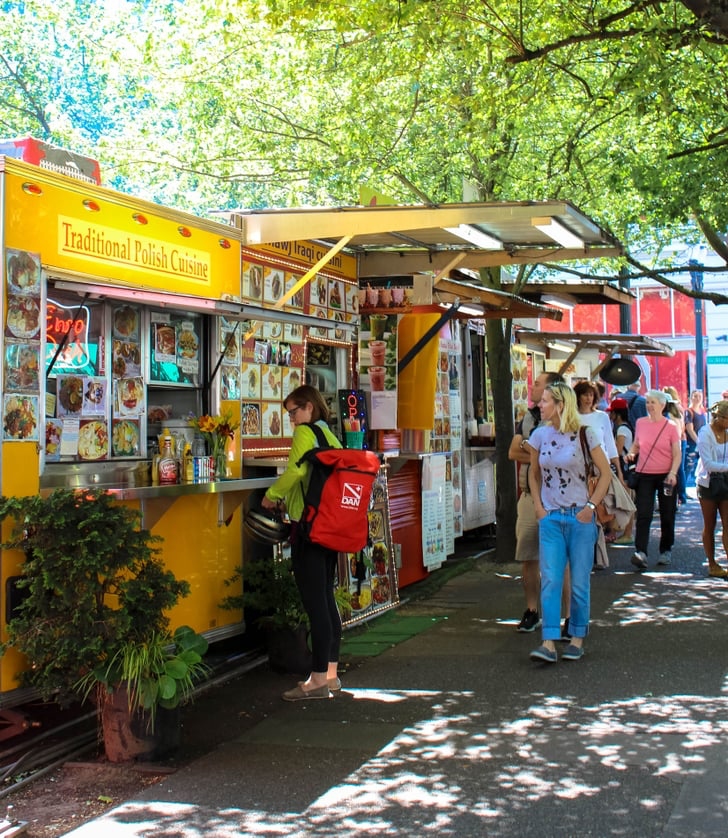
Join us at the opening night Welcome Back Reception to celebrate the start of IMMUNOLOGY2022™! Come directly from the President’s Address to a lineup of Portland’s world-famous food trucks just outside the Convention Center, featuring cuisines for every taste. Reunite with friends, make new acquaintances, and plan your week. One complimentary drink ticket is included in your registration. Delicious and different!
Registered attendees only. Attendees must be 21 years of age or older.
Saturday, May 7, 2022 7:00 PM – 8:30 PM
AAI Minority Affairs Committee (MAC) Social Hour
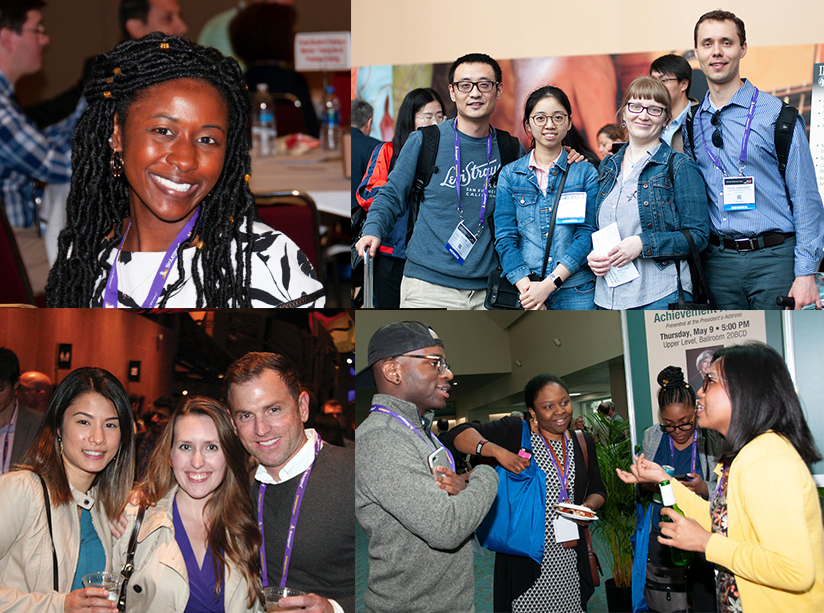
One of the most important and meaningful aspects of the annual meeting is connection! The AAI MAC Social Hour is an evening gathering during which participants in the annual MAC Careers Roundtables session reconvene for relaxed, informal networking. This event brings attendees together to make career-changing connections (and new friends) with peers, mentors, and senior scientists representing the diversity of AAI and the meeting. Soft drinks and hors d'oeuvres will be served.
Badge and invitation required. Invitations will be issued to meeting attendees registered to attend the MAC Careers Roundtables and Speed Networking Session.
Monday, May 9, 2022 7:00 PM – 9:30 PM Portland Art Museum
IMMUNOLOGY2022™ Gala
Generously supported by Biolegend
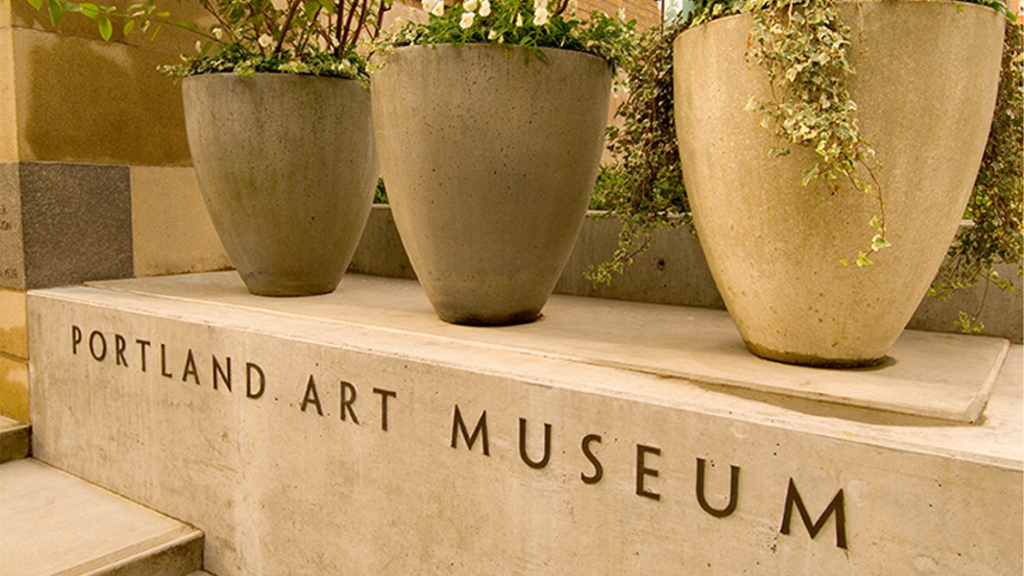
The IMMUNOLOGY2022™ Gala will be held at the Portland Art Museum. The Portland Art Museum features outstanding exhibits ranging from modern trends to historic art periods. Take part in interactive exhibits, view films, or gaze at classic pieces. The museum shop will also be open. Uniquely, the Portland Art Museum recognizes and honors the Indigenous communities–past, present, and future—of the region on whose ancestral lands it stands. Attendees will have access to the full museum. Food and drinks will be available, and as is the Gala’s tradition, you will have the opportunity to express yourself on the Grand Ballroom dance floor!
Tickets will be available for purchase during the online registration process.
Saturday, May 7, 2022 1:00 PM – 2:30 PM Room B110–112
AAI Business Meeting and Awards Presentation
Chair
- M. Michele Hogan, CEO, AAI
AAI reports on the “state of the association” to its members at every AAI annual meeting. Members will hear from the CEO, the Secretary-Treasurer on the financial standing of AAI, the Editors-in-Chief of The Journal of Immunology (The JI) and ImmunoHorizons (IH) on the status of AAI journals, and the Chair of the Committee on Public Affairs on important public policy issues, and other items of interest for the membership. Special AAI career awards will also be presented during this session.
Saturday, May 7, 2022 1:00 PM – 2:30 PM Room B110–112
AAI Distinguished Service Award Presentations
Chair
- M. Michele Hogan, AAI
Award Recipients

Ross Kedl
Univ. of Colorado Sch. of Med.
For outstanding service as Chair and Member of the AAI Committee on Public Affairs, 2015-2021

Edith M. Lord
Univ. of Rochester Sch. of Med. and Dent.
For exceptional service as AAI Secretary-Treasurer, 2015-2021
AAI CEO M. Michele Hogan will introduce the awardees and present the awards during the AAI Business Meeting.
The AAI Distinguished Service Awards recognize individuals for outstanding service to AAI and the immunology community.
Travel Awards
AAI annually provides hundreds of travel awards and grants to recognize the promise and promote the professional development of investigators of all career stages.
Saturday, May 7, 2022 1:00 PM Room B110–112
Pfizer-Showell Travel Award
This award recognizes the professional promise of an early career investigator (assistant professor or equivalent) by assisting the award recipient with registration for the AAI annual meeting to present their research. This award is supported through an endowment from Henry J. Showell and Pfizer, Inc.
Award Recipient
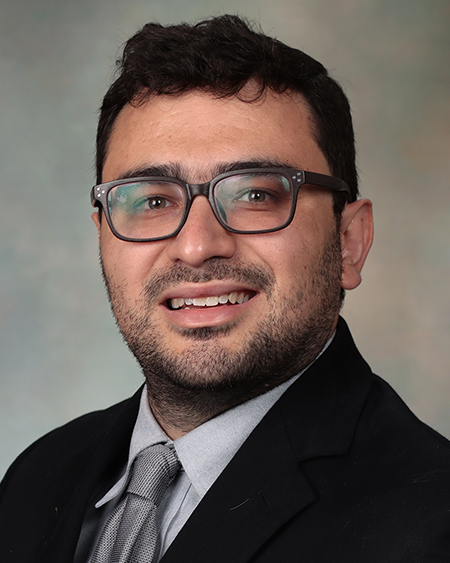
Henrique Borges da Silva, Ph.D.
Assistant Professor
Mayo Clin. Arizona
AAI CEO M. Michele Hogan will acknowledge the awardee during the AAI Business Meeting.
Saturday, May 7, 2022 1:00 PM Room B110–112
Lustgarten-Thermo Fisher Scientific Memorial Award
Established to honor the memory of AAI Member Dr. Joseph Lustgarten, this award is intended to advance the career of a mid-career scientist who attends the AAI annual meeting and presents an outstanding abstract specifically in the area of immune regulation. This award is generously supported by Thermo Fisher Scientific.
Award Recipient
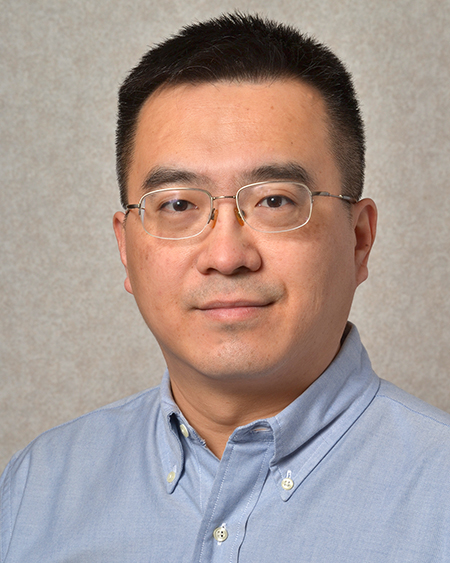
Haitao Wen, Ph.D.
Associate Professor
The Ohio State Univ.
AAI CEO M. Michele Hogan will acknowledge the awardee during the AAI Business Meeting.
Saturday, May 7, 2022 1:00 PM Room B110–112
Lefrançois-BioLegend Memorial Award
Established to honor the memory of AAI Member Dr. Leo Lefrançois, this award is intended to advance the career of a trainee who attends the AAI annual meeting and presents an outstanding abstract specifically in the area of mucosal immunology. This award is generously supported by BioLegend and donations from friends and colleagues of Dr. Lefrançois.
Award Recipient
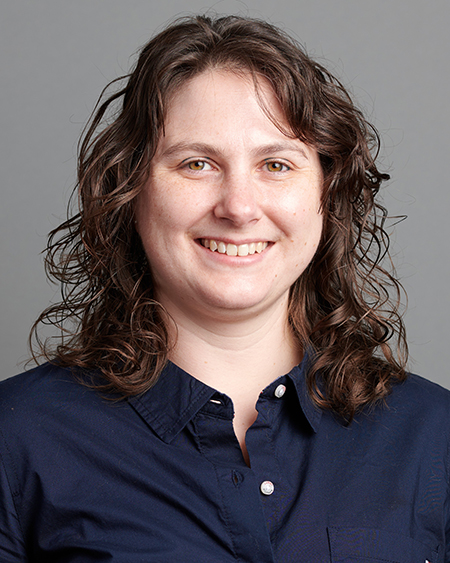
Emily M. Eshleman, Ph.D.
Postdoctoral Fellow
Cincinnati Children's Hosp. Med. Ctr.
AAI CEO M. Michele Hogan will acknowledge the awardee during the AAI Business Meeting.
Saturday, May 7, 2022 1:00 PM Room B110–112
Chambers-Thermo Fisher Scientific Memorial Award
Established to honor the memory of AAI Member Dr. Cynthia Chambers, this award is intended to advance the career of an early career scientist who attends the AAI annual meeting and presents an outstanding abstract specifically in the area of cancer biology. This award is generously supported by Thermo Fisher Scientific.
Award Recipient
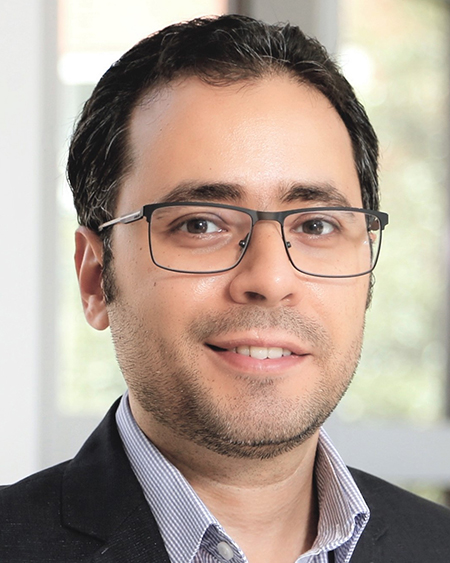
Hazem E. Ghoneim, Ph.D.
Assistant Professor
The Ohio State Univ. Col. of Med.
AAI CEO M. Michele Hogan will acknowledge the awardee during the AAI Business Meeting.
Saturday, May 7, 2022 1:00 PM Room B110–112
AAI-Thermo Fisher Trainee Achievement Awards
This award recognizes up to six promising trainees in the field of immunology. Selection is based on career promise and presentation of an outstanding first-author abstract selected for a Block Symposium. This award is generously supported by Thermo Fisher Scientific.
Award Recipients
- Heather L. Caslin, Ph.D., Postdoctoral Fellow, Vanderbilt Univ.
- Jing Li, Ph.D., Postdoctoral Fellow, Stanford Univ.
- Jorge F. Ortiz-Carpena, Graduate Student, Univ. of Pennsylvania
- Nataliya Prokhnevska, Graduate Student, Emory Univ.
- Daniel F. Zegarra Ruiz, Ph.D., Postdoctoral Fellow, Mem. Sloan Kettering Cancer Ctr.
- Zinan Zhang, Graduate Student, Harvard Med. Sch.
AAI CEO M. Michele Hogan will acknowledge the awardees during the AAI Business Meeting.
Other Award Presentations
Hundreds of AAI members are eligible to receive Trainee Abstract Awards each year! To be eligible for these awards, individuals must be members of AAI at the time of abstract submission. Details about IMMUNOLOGY2022™ awards can be found at aai.org/Awards. Apply by December 20, 2021.
Block Symposia
Abstracts of unpublished, original research are slated for presentation at IMMUNOLOGY2022™ during Poster Sessions and Block Symposia. All abstracts are reviewed by committees of experts in their respective areas and scheduled for presentation. Outstanding abstracts will be selected for inclusion in Block Symposia.
Click on a topic to see full details.
Friday, May 6, 2022 2:00 PM – 4:00 PM
Block Symposia
- Antigen Processing and Presentation I
Room A107–109
- HSCs and Myelopoiesis
Room B117–119
- Immune-Based Therapeutics for Neurological Disease
Room B113–116
- Immunoregulation—General
Room C123–124
- Immunoregulation—Mechanism of Action
Room A105–106
- Memory T Cell Differentiation, Function, and Maintenance
Oregon Ballroom 202
- Pulmonary, Vasculature, and Skin Immunity
Room B110–112
- Tumor Immunotherapy (TI1)
Oregon Ballroom 203
- Vaccines and Immunobiologics against Viruses
Oregon Ballroom 201
Saturday, May 7, 2022 8:00 AM – 10:00 AM
Block Symposia
- Engineering Immunoreceptor and Cytokine Signaling for Therapeutics
Oregon Ballroom 201
- From Sharks, Fish, and Frogs to Mammals: Fascinating Immunological Discoveries
Room A107–109
- Mechanisms of Resistance to Therapy
Room B113–116
- Molecular Mechanisms of Cytokine Function
Oregon Ballroom 203
- Regulation of B and T Cells in Autoimmune Diseases
Room B110–112
- Technological Innovations in Immunology I
Room A105–106
- They Come and They Go: A Leukocyte Migration Extravaganza
Room C123–124
Saturday, May 7, 2022 10:15 AM – 12:15 PM
Block Symposia
- Autoimmunity
Oregon Ballroom 203
- Molecular and Cellular Control of Humoral Immunity
Room C123–124
- Pathogenesis of SARS-CoV-2 Infection
Oregon Ballroom 202
- Tissue Immunity at Barrier Sites
Oregon Ballroom 204
- Tumor Immunotherapy (TI2)
Oregon Ballroom 201
Saturday, May 7, 2022 12:30 PM – 2:30 PM
Block Symposia
- Immunity to Microbial, Parasitic, and Fungal Infections II
Room B113–116
- Immunity to SARS-CoV-2
Oregon Ballroom 201
- Immunoregulation—Infection and Immunity
Room A105–106
- The Ins and Outs of Airway Inflammation
Oregon Ballroom 202
Saturday, May 7, 2022 3:45 PM – 5:45 PM
Block Symposia
- Autoantigen Identification, Autoantigen Specificity, and Central Tolerance
Room B110–112
- B and T Cell Development
Room B117–119
- Molecular, Metabolic, and Epigenetic Regulation of Innate Immunity and Inflammation
Room A105–106
- Overcoming Current Roadblocks in CAR T Cell Therapy
Oregon Ballroom 201
Sunday, May 8, 2022 8:00 AM – 10:00 AM
Block Symposia
- B Cell and T Cell Helper Responses during Viral Infections
Oregon Ballroom 202
- Big Data: The Key to Unlocking Immune Mediated Mechanisms of Tumor Progression and Therapy Response
Room B113–116
- Infection and Disease
Oregon Ballroom 201
- Molecular Mechanisms of Inflammation
Room B117–119
- Mucosal Innate Immune Cells
Room A105–106
- T Cell Effector Generation and Function
Room C123–124
Sunday, May 8, 2022 10:15 AM – 12:15 PM
Block Symposia
- Primary Immune Deficiency and Immune Dysregulation
Oregon Ballroom 201
- Technological Innovations in Immunology II
Oregon Ballroom 204
- Tissue-Resident Memory T Cells (Trm) in Cancer
Oregon Ballroom 202
Sunday, May 8, 2022 12:30 PM – 2:30 PM
Block Symposia
- The Impact of the Commensal Microbiome on Cancer Progression and Therapy Response
Room B113-116
- Innate Immunity to Viral Infection
Oregon Ballroom 203
- Innate Signaling, Microbiome, and Metabolism in Autoimmunity
Room B110–112
- Neuronal and Central Nervous System Immunity
Room B117–119
- Vaccines and Immunity against Bacteria and Parasites
Oregon Ballroom 202
Sunday, May 8, 2022 3:45 PM – 5:45 PM
Block Symposia
- CD4+ T Cells in Cancer
Room A105–106
- CD8+ T Cell Immunity to Viral Infections
Oregon Ballroom 201
- Therapies for Rheumatic Diseases and Beyond
Oregon Ballroom 202
- Transplant Immunology: Novel Mechanisms and Interventions
Oregon Ballroom 203
- Tumor Microenvironment (TME) I
Room B113–116
- Vaccination and Immunotherapy against COVID-19
Oregon Ballroom 204
Monday, May 9, 2022 8:00 AM – 10:00 AM
Block Symposia
- CD4+ T Cell Regulation and Responses: Molecular Mechanisms
Room C123–124
- Mechanisms of Viral Sensing and Innate Immune Responses
Oregon Ballroom 202
- Microbiota and Epithelial Interactions
Room A105–106
- Tissue Inflammation
Room A107–109
Monday, May 9, 2022 10:15 AM – 12:15 PM
Block Symposia
- Cytokine and Regulatory Cell Control of Autoimmunity
Room A105–106
- Food Allergy, Atopic Dermatitis, and Mast Cells, Oh My!
Oregon Ballroom 202
- Innate Immune Response to Infection
Room A107–109
- Innate Lymphocytes and Innate-Like T Cells in Cancer
Oregon Ballroom 203
- Macrophages, Myeloid, and Dendritic Cells in Tumor Immunity and Immunotherapy
Oregon Ballroom 201
Monday, May 9, 2022 12:30 PM – 2:30 PM
Block Symposia
- Innate Immune Sensing and Signaling
Room B117–119
- Neonatal Mucosal Immunity
Room B110–112
Monday, May 9, 2022 3:45 PM – 5:45 PM
Block Symposia
- CD8+ T Cells in Cancer
Oregon Ballroom 201
- Molecular Regulation of Innate and Cytotoxic Lymphocyte Responses
Room C123–124
- Mucosal Immune Regulatory Mechanisms
Room B117–119
Tuesday, May 10, 2022 8:00 AM – 10:00 AM
Block Symposia
- Antigen Processing and Presentation II
Room A107–109
- B Cell Differentiation, Regulation, and Function
Room B117–119
- Cytokine and Chemokine Control of Cellular Immunity
Room C123–124
- Immunoregulation—Innate Immune Responses
Room B110–112
- Non-Immune Therapies in Cancer
Room B113–116
Tuesday, May 10, 2022 10:15 AM – 12:15 PM
Block Symposia
- Adaptive Immunity in Inflammation
Room C123–124
- Cells of the Innate Immune System
Room A107–109
- Immunity to Microbial, Parasitic, and Fungal Infections I
Room B117–119
- Lymphocyte Homeostasis and Regulation
Room B110–112
- Molecular Mechanisms of T Cell Signaling
Room A105–106
- Tumor Microenvironment (TME) II
Room B113–116
Poster Sessions
All abstracts–including those selected for Block Symposia–are scheduled for presentation in Poster Sessions. Individual posters will be available for attendees to view during IMMUNOLOGY2022™. During designated Poster Sessions, authors will be present to discuss their work live. Poster Sessions are held at dedicated times unopposed by any other session.
Saturday, May 7, 2022 2:30 PM – 3:45 PM Exhibit Hall
Poster Session
- CD4+ T Cell Regulation and Responses: Molecular Mechanisms
- Cytokine and Chemokine Control of Cellular Immunity
- Cytokine and Regulatory Cell Control of Autoimmunity
- Food Allergy, Atopic Dermatitis, and Mast Cells, Oh My!
- HSCs and Myelopoiesis
- Immunoregulation—General
- Immunoregulation—Mechanism of Action
- Immunity to Microbial, Parasitic, and Fungal Infections I
- Innate Immune Response to Infection
- Innate Immune Responses and Host Defense: Cellular Mechanisms I
- Innate Immune Sensing and Signaling
- Innate Lymphocytes and Innate-Like T Cells in Cancer
- Macrophages, Myeloid, and Dendritic Cells in Tumor Immunity and Immunotherapy
- Memory T Cell Differentiation, Function, and Maintenance
- Molecular Mechanisms of Cytokine Function
- Molecular Regulation of Innate and Cytotoxic Lymphocyte Responses
- Neonatal and Fetal Mucosal Immunity
- Pulmonary, Vasculature, and Skin Immunity
- Therapeutic Approaches to Autoimmunity and Other Diseases
- Tissue Resident Memory T Cells (Trm) in Cancer
- Vaccination and Immunotherapy
- Vaccination and Immunotherapy Against COVID-19
- Vaccines and Immunobiologics Against Viruses
Sunday, May 8, 2022 2:30 PM – 3:45 PM Exhibit Hall
Poster Session
- Antigen Presentation and Tumor Microenvironment
- Antigen Processing and Presentation
- Autoantigen Identification, Autoantigen Specificity, and Central Tolerance
- Autoimmunity
- B and T Cell Development
- CD8+ T Cells in Cancer
- Engineering of T Cell Based Therapies
- From Sharks, Fish, and Frogs to Mammals: Fascinating Immunological Discoveries
- Immunoregulation—Infection and Immunity
- Immunology Education
- The Impact of the Commensal Microbiome on Cancer Progression and Therapy Response
- Innate and Adaptive Immunity to SARS-CoV-2
- Innate and Adaptive Immunity to Viruses I
- The Ins and Outs of Airway Inflammation
- Mechanisms of Resistance to Therapy
- Microbiota and Epithelial Interactions
- Molecular and Cellular Control of Humoral Immunity
- Molecular, Metabolic, and Epigenetic Regulation of Innate Immunity and Inflammation
- Mucosal Immune Regulatory Mechanisms
- Non-Immune Therapies in Cancer
- Regulation of B and T Cells in Autoimmune Diseases
- Technological Innovations in Immunology I
- They Come and They Go: A Leukocyte Migration Extravaganza
- Tissue Immunity at Barrier Sites
- Tumor Immunotherapy (TM1)
Monday, May 9, 2022 2:30 PM – 3:45 PM Exhibit Hall
Poster Session
- Adaptive Immunity in Inflammation
- B Cell Differentiation, Regulation, and Function
- Big Data: The Key to Unlocking Immune Mediated Mechanisms of Tumor Progression and Therapy Response
- CD4+ T Cells in Cancer
- Cells of the Innate Immune System
- Immunoregulation—Innate Immune Responses
- Immunity to Microbial and Parasitic Infections II
- Infection and Disease
- Innate Immune Responses and Host Defense: Cellular Mechanisms II
- Innate Signaling, Microbiome, and Metabolism in Autoimmunity
- Lymphocyte Homeostasis and Regulation
- Molecular Mechanisms of T Cell Signaling
- Mucosal Innate Immune Cells
- Neuronal and Central Nervous System Immunity
- Primary Immune Deficiency and Immune Dysregulation
- T Cell Effector Generation and Function
- Technological Innovations in Immunology II
- Technological Innovations in Immunology III
- Therapeutic Approaches to Autoimmunity II
- Transplant Immunology: Novel Mechanisms and Interventions
- Tumor Immunotherapy (TI1)
- Tumor Microenvironment (TME) I
- Tumor Microenvironment (TME) II
- Vaccines and Immunity against Bacteria and Parasites
Please refer to our Abstracts page for more information on the abstract submission process.
Exhibit Hall
The Exhibit Hall at IMMUNOLOGY2022™ brings attendees and exhibitors together for three event-filled days of booth displays of products and services and educational workshops hosted by exhibiting companies. Attendees can confer with exhibitors providing the products, services, and technologies that enable them to advance their research through cutting edge techniques.
The most dynamic part of the entire meeting, poster presentations, author discussions, and networking, happens in the Exhibit Hall during these three days.
Exhibit Hall Hours
Saturday, May 7
9:30 AM—4:30 PM
Sunday, May 8
9:30 AM—4:30 PM
Monday, May 9
9:30 AM—4:30 PM
Activities in the AAI Booth
Saturday, May 7
- Meet ImmunoHorizons Editor-in-Chief Mark K. Kaplan.
- Meet with AAI President Gary Koretzky and the Membership Committee.
- Meet the Public Policy Fellows and discover why YOU should be our next Fellow.
Sunday, May 8
- Meet the The JI Editor-in-Chief Eugene M. Oltz.
- Ideas for sessions on bench to bedside? Discuss with Clinical Immunology Committee members.
Monday, May 9
- Meet the Public Policy Fellows and discover why YOU should be our next Fellow.
- Meet AAI Minority Affairs Committee (MAC) members and learn about MAC activities.
- Suggest sessions for IMMUNOLOGY2023TM to Program Committee members.
Exhibitor Workshops
Take advantage of the knowledge-building opportunities presented in Exhibitor Workshops. These workshops explore the newest technologies, products, and services through presentations, demonstrations, and discussions.
Saturday, May 7, 2022 10:00 AM – 10:45 AM Exhibit Hall, Workshop Room 2
Exhibitor Workshop: Sony Biotech., Inc.
Epigenetic Modulation of Leukemia Driver Mutation
Speaker
- Jane Xu, Ph.D., Postdoctoral Fellow, Columbia Stem Cell Initiative, Columbia Univ., NY
A growing understanding of the molecular mechanisms underlying various cancers has contributed significantly to the evolution of cancer diagnostics and treatment. In leukemia, genetic mutations are thought to be the main driver of cellular transformation. However, leukemia cells harboring the same mutation or mutation clusters can actively remodel the epigenome and present divergent responses to ‘targeted’ therapy. Prior work demonstrated the establishment of determinants of clonal fitness within the leukemic epigenome in the absence of epigenetic mutations. It is still unknown how leukemia mutations modulate the epigenome and how this non-somatic influence underpins the functional and therapeutic heterogeneity. Our research focus is on elucidating the interactions between Stag2, the most frequently mutated cohesin member in cancer, and two leukemia driver mutations, Npm1c or Flt3-ITD. We hypothesize that cohesin dysfunction contributes to the establishment of the leukemic epigenome, which is vulnerable to genetic intervention. Determining the mechanistic interaction between the cohesin complex and Npm1c or Flt3-ITD may uncover novel pathophysiologic consequences of epigenetic alterations, and the relationship to therapeutic response divergency.
Saturday, May 7, 2022 10:00 AM – 10:45 AM Exhibit Hall, Workshop Room 3
Exhibitor Workshop: 10x Genomics
Antibody Discovery Using Barcode Enabled Antigen Mapping (BEAM)
Speakers
- Rea Dabelic, Ph.D., Sr. Manager, Market Development, Immunology
- Bryan Briney, Ph.D., Asst. Prof., Dept. of Immunology and Microbiology, Scripps Res.
Humans who have recovered from infectious disease possess a memory B cell pool capable of producing neutralizing antibodies against the cleared pathogenic agent. While these antibodies have critical therapeutic potential, current methods for identification of candidate B cells are prohibitive to rapid development of therapeutics. Learn how the 10x Barcode Enabled Antigen Mapping workflow can greatly enhance and shorten your discovery of B cell candidates, while also generating transcriptomic profiles and natively paired heavy and light chain full-length B-cell receptor sequences at single cell resolution.
Saturday, May 7, 2022 11:15 AM – 12:00 PM Exhibit Hall, Workshop Room 1
Exhibitor Workshop: Adaptive Biotech.
Research Applications Utilizing the immunoSEQ® Assay in Vaccine and Viral Infection Studies
Speakers
- Kaylani Merrill, Ph.D., Res. Account Manager, Introduction of immunoSEQ® Technology
- Richard J. DiPaolo, Ph.D., Prof. and Interim Chair, Department of Molecular Microbiology & Immunology, St Louis Univ. School of Med., Research Applications Utilizing the immunoSEQ® Assay in Vaccine and Viral Infection Studies
Dr. DiPaolo will be discussing data generated in his lab that used the immunoSEQ Assay to identify and track vaccine-specific and virus-specific T cells circulating in blood longitudinally, to distinguish T cell receptors (TCRs) specific for Zika and Dengue viruses, and to determine the impact of immunotherapy on tumor-infiltrating T cells. He will also discuss bioinformatic analyses of TCR sequences to develop diagnostics for viral infections.
Saturday, May 7, 2022 11:15 AM – 12:00 PM Exhibit Hall, Workshop Room 2
Exhibitor Workshop: Cell Signaling Technol.
Single-Cell Signaling: How to Capture Immune Cell Signaling Patterns with Intracellular, Phospho Flow Cytometry
Speaker
- Robert MacDonald, Ph.D., Scientist, Flow Cytometry Grp.
To characterize the activation of immune cells in response to therapy, measurement of intracellular signaling using phospho-specific antibodies combined with immune phenotyping using surface markers is ideal. Owing to the unique capability of flow cytometry to measure events at a single-cell level, “Phospho Flow” allows for the identification of rare signaling events in response to immune cell modulation. However, combining extracellular and intracellular antibodies in a flow protocol can present technical challenges. This workshop will discuss how small protocol changes can impact results and provide tools enabling multiplexed experimental design combining phenotypic markers with phospho-specific intracellular targets including the use of fix and perm kits.
Saturday, May 7, 2022 11:15 AM – 12:00 PM Exhibit Hall, Workshop Room 3
Exhibitor Workshop: Miltenyi Biotec
Improve your CAR T Cell Research
Speaker
- Marcello Stein Ph.D., Marketing Manager, Translational Immunology Res.
Join us at our workshop where we will highlight our latest product solutions and strategies for a successful research-scale CAR T cell workflow to efficiently move your research forward. Learn how to: isolate fully functional T cells directly from whole blood and blood products, boost lentiviral T cell transduction efficiency, easily activate and expand your T cells without hassle, and advance your IPC and QC with our latest flow analysis solutions.
Saturday, May 7, 2022 12:30 PM – 1:15 PM Exhibit Hall, Workshop Room 3
Exhibitor Workshop: Miltenyi Biotec
Ultra-High Content Imaging Helps to Identify CAR Target Candidates Against Pancreatic Adenocarcinoma
Speaker
- Daniel Schäfer Ph.D., Team Coordinator Cellular Immunotherapy
Chimeric antigen receptor (CAR) T cells have become a new pillar of cancer therapy. This therapy has been applied successfully in the treatment of some cancers of the bone marrow and blood. However, the remarkable success of CAR T cell therapies in liquid tumors has not yet been translated to solid malignancies. Using our innovative MICS technology, we identified four CAR targets among 371 antigens tested. This in turn resulted in the generation of 32 CARs whose potential was tested in vitro and in vivo. Efficacy in pre-clinical studies ranged from stabilized disease to complete tumor eradication.
Saturday, May 7, 2022 12:30 PM – 1:15 PM Exhibit Hall, Workshop Room 2
Exhibitor Workshop: Luminex, A DiaSorin Company
How the Amnis® ImageStream®X Imaging Flow Cytometer Advances Research in Immunology
Speaker
- Brian Hall, Product Manager, Imaging Flow Cytometry
The ImageStream® System has enabled strategic advances in cell analysis research and has supported the development of novel experiments to better understand immune cell function. From characterizing CAR T cells to measuring NK cell mechanisms, the field of immunology has advanced through diligent research supported by technologies that enable scientists to make new discoveries. Here, we describe some of the applications that have been enhanced by imaging flow cytometry, including T cell activation as measured by NF-κB translocation, characterization of CAR T cell binding, and how new software like Amnis® AI can use computer learning algorithms to simplify immune synapse formation analysis. For Research Use Only. Not for use in diagnostic procedures.
Saturday, May 7, 2022 1:45 PM – 2:30 PM Exhibit Hall, Workshop Room 1
Exhibitor Workshop: BioLegend
Inactivation of SARS-COV2 for Analysis of Samples Using LEGENDplex Multiple Assays and Flow Cytometry
Speaker
- Theodore G Liou, M.D., Prof. of Internal Med., Univ. of Utah
Severe acute respiratory syndrome coronavirus 2 (SARS-CoV-2) is a life-threatening pathogen that requires extreme caution when handling samples with active viral particles. The CDC recommends that processing of samples containing SARS-CoV-2 should be performed in biosafety level 3 laboratories. This restricts many research groups without access to biosafety 3 laboratories from safely analyzing samples. Herein, we present a strategy for rendering SARS-CoV-2 inactive in samples for bead-based immunoassays (LEGENDplex analysis) and flow cytometry, which allows sample characterization at reduced biosafety levels. The strategy may facilitate the analysis of samples potentially containing other viral pathogens after sufficient additional safety testing.
Theodore G Liou collaborates with Biolegend and received reagents for the performance of this work. Dr. Liou is a Tenured Faculty Member of the University of Utah and is the Director of the Adult CF Care Center and member of the Center for Quantitative Biology at the U of Utah. He is supported by grant funding from the NHLBI (R01 HL125520), the US CF Foundation (CC132-16AD, LIOU14Y0, LIOU14P0), the Margolis Family Foundation of Utah and the Claudia Ruth Goodrich Stevens Endowment Fund. Dr. Liou and the CF Center at the University of Utah received funding within the last three years to perform sponsored clinical trials focused on CF from Abbvie, Aridis, Armata, BiomX, Calithera Biosciences, Corbus Pharmaceuticals, Gilead Sciences, Laurent Pharmaceuticals, Nivalis Therapeutics, Novartis, Proteostasis, Savara Pharmaceuticals, Translate Bio and Vertex Pharmaceuticals. None of the commercial research sponsors were involved with the current presentation. Dr. Liou is a member of the Clinical Research Award Committee at the CF Foundation and is a member of the Steering Committee for the CF Foundation’s Therapeutic Development Network.
Saturday, May 7, 2022 1:45 PM – 2:30 PM Exhibit Hall, Workshop Room 2
Exhibitor Workshop: Thermo Fisher Scientific
Leveraging Novel Fluorophore Technologies to Enable Flexible and Higher Dimensional Immune Profiling by Spectral Flow Cytometry
Speaker
- Seddon Y. Thomas, Ph.D., Staff Scientist, Cell Biology
High dimensional full spectrum flow cytometry grants unprecedented access to previously unattainable parameters in cellular biology. The development of fluorescent labels engineered with targeted excitation and emission spectra using the Invitrogen™ Phiton™ DNA platform has expanded the complexity and resolution of biological questions that can be asked in a single panel. In this tutorial, we take a deep dive into a broadly focused human immune panel with over 30 parameters that is designed to enable biologists to expand plex while preserving spectral space for specific markers of choice.
Saturday, May 7, 2022 1:45 PM – 2:30 PM Exhibit Hall, Workshop Room 3
Exhibitor Workshop: Studylog Animal Study Workflow Software
Best Data and Conduct Practices for Improving Animal Study Reproducibility
Speaker
- Eric Ibsen, CEO
Results from in vivo animal experiments are notoriously difficult to reproduce. This difficulty in generating results with a high level of integrity, detail, and reproducibility on a consistent basis underscores the need to critically examine, improve, and standardize processes for animal study conduct. Researchers must understand the factors contributing to poor data quality and irreproducible study results and implement effective “best practices” for data integrity, study conduct, and scientific rigor. Researchers attending this presentation will gain an understanding of some success factors, practical approaches, and study workflow software approaches to make animal studies more reproducible.
Sunday, May 8, 2022 10:00 AM – 10:45 AM Exhibit Hall, Workshop Room 1
Exhibitor Workshop: NanoString Technol.
Advances in Spatial Immunology
Speakers
- Elizabeth Schneider, Ph.D., Spatial Biology: See the Immune Microenvironment in a Whole New Light
- Jacob D. Estes, Ph.D., Prof., Vaccine & Gene Therapy Inst., Affiliate Prof., Dept. of Molecular Microbiology & Immunology, Chief, Div. of Pathobiology and Immunology, Oregon National Primate Res. Ctr. Oregon Hlth. & Sci. Univ., Characterizing and Eliminating the Follicular Dendritic Cell HIV Reservoir
HIV cannot be eradicated by antiretroviral therapies (ART) alone. A comprehensive understanding of all HIV reservoirs with the potential to reignite systemic infection after discontinuation of ART is key to realizing any HIV cure. See how Dr. Estes and his colleagues uncover novel insights into the impact of ART treatment on viral reservoirs in the context of their tissue microenvironments and cellular immune neighborhoods in the non-human primate models using comprehensive spatial profiling strategies. These methods have improved their understanding of the unique FDC-HIV reservoir and provide insights for devising effective treatment approaches as part of a combinatorial HIV cure strategy.
Sunday, May 8, 2022 10:00 AM – 10:45 AM Exhibit Hall, Workshop Room 2
Exhibitor Workshop: Luminex, A DiaSorin Company
Bead-based Multiplex Assays for Malaria Epidemiological Estimates and Immunological Studies
Speaker
- Eric Rogier, Ph.D., M.P.H., Microbiologist, CDC
Malaria is caused by Plasmodium infection and is a major public health burden in many tropical areas of the world. As malaria may be asymptomatic and health facility reporting unreliable, gaining accurate epidemiological estimates can be difficult. Multiplexing data collection for Plasmodium proteins and IgG against parasite antigens provides valuable datasets to better understand the different species and transmission, identify areas for resource allocation, and track trends over time. As dozens of malaria serological targets have been identified, bead-based multiplexing allows simultaneous collection of IgG data within the same assay well for immunoprofiling purposes.
Sunday, May 8, 2022 10:00 AM – 10:45 AM Exhibit Hall, Workshop Room 3
Exhibitor Workshop: 10x Genomics
High-Throughput Cell and Repertoire Profiling at Single-Cell Resolution
Speaker
- Rea Dabelic, Ph.D., Sr. Manager, Market Development, Immunology
Immune cells are multidimensional. While access to the transcriptome of individual cells from a heterogeneous blood or tumor sample can reveal critical information about cell identity and state, there are many more dimensions of immune cell biology to understand and leverage in the effort to identify novel antibodies, develop improved immunotherapies, and advance human health. Now, capture multiple dimensions of immune cell biology, from cell surface proteins and antigen specificity, all at single-cell resolution, with multiomic cytometry.
Sunday, May 8, 2022 11:15 AM – 12:00 PM Exhibit Hall, Workshop Room 3
Exhibitor Workshop: BD Biosciences
Deep Science Seminar: High-dimensional Biology for Biomarker Discovery and Functional Characterization of Novel Cell Subsets
Speaker
- Robert Balderas, VP Biological Sci.
As technologies in our industry advance in complexity, speed, sensitivity and ease of use, the opportunity to use multiple approaches to answer high-dimensional biological questions is changing and expanding our knowledge of immunology. This presentation will highlight how the combined use of high-parameter analytical flow cytometry and advanced single-cell multiomic tools (proteomic and genomic) can help define functional murine NK cell subsets.
Sunday, May 8, 2022 11:15 AM – 12:00 PM Exhibit Hall, Workshop Room 1
Exhibitor Workshop: Lunaphore Technologies
Turn a Standard Immunofluorescence Assay into Spatial Proteomics
Speaker
- James Denegre, Ph.D., Field Application Scientist
Lunaphore brings new ways of utilizing any standard reagents to perform multiplex immunofluorescence assays, empowering researchers with a slide-in data-out approach. In this workshop, we will present our recent advancements highlighting COMET, a walk-away staining and imaging solution that enables single-cell analysis, up to 40 biomarkers on the same slide. Attendees will also check and discuss data on the impact of using this ground-breaking technology to minimize assay development time and move faster in deciphering the immune microenvironment.
Sunday, May 8, 2022 11:15 AM – 12:00 PM Exhibit Hall, Workshop Room 2
Exhibitor Workshop: Akadeum Life Sci.
Buoyancy-Activated Cell Sorting Enables More Efficient Leukopak Processing and High-Quality Cell Isolation
Speakers
- Jon Roussey, Ph.D., Associate Director of R&D
- Ichwaku Rastogi, Res. Asst., Univ. of Wisconsin
Buoyancy Activated Cell Sorting (BACS™) Microbubbles from Akadeum Life Sciences offers a gentle and effective flotation-based cell isolation platform that is unbound from the constraints of magnets and columns. At this workshop, we will present two examples of the advantages that BACS have over conventional cell isolation methods. First, we will demonstrate how microbubbles eliminate volume limitations and pre-processing steps for the isolation of T cells from leukopaks. Then, University of Wisconsin researcher Ichwaku Rastogi will discuss how microbubble-based isolation of B cells enabled recent findings identifying B cells as primary APCs following passive uptake of plasmid DNA. I.Rastogi receives research grants, salary support, or in-kind support from Akadeum Life Sciences.
Sunday, May 8, 2022 12:30 PM – 1:15 PM Exhibit Hall, Workshop Room 1
Exhibitor Workshop: FlowJo, LLC
Vidi Vici Idolum: A Guide to Conquering High-dimension Data from Clean-up to Trajectory Analysis
Speaker
- Jack Panopoulos, Ph. D., Application Scientist
A diverse repertoire of algorithmic tools is needed to identify novel phenotypes, functional states, and disease correlates from high-dimensional data. In this tutorial we will review the primary classes of algorithm applicable to cytometric data, and then demonstrate a high-dimensional workflow using an exemplar from each class. We will then push the traditional bounds via a trajectory analysis algorithm, TrackSOM. The nature of the cytometric data tends to confine analysis to a ‘snapshot’ of cellular dynamics. Trajectory analysis follows population dynamics over multiple time points, adding a layer of functional analysis that was previously difficult to ascertain.
Sunday, May 8, 2022 12:30 PM – 1:15 PM Exhibit Hall, Workshop Room 2
Exhibitor Workshop: STEMCELL Technol., Inc.
Tools for Fundamental & Translational NK Cell Research
Speakers
- Sneha Balani, Ph.D., Product Manager, Immunology
- Tim Le Fevre, B.Sc., Scientist
Natural killer (NK) cells are gaining popularity as a therapeutic tool for their unique ability to recognize and kill virus-infected and cancer cells without prior immune sensitization. Generating these cells in therapeutically relevant numbers continues to be a major challenge in the field. In this workshop, we will discuss reagents for cell isolation and generating NK cells from stem cells. We will also feature a new, streamlined culture system that enables feeder- and serum-free expansion of functional NK cells with high yields, providing a complete workflow solution for NK cell research.
Sunday, May 8, 2022 12:30 PM – 1:15 PM Exhibit Hall, Workshop Room 3
Exhibitor Workshop: Emulate
Modeling Inflammatory Immune Cell Recruitment and Response with the Colon Intestine-Chip
Speaker
- Christopher Carman, Ph.D., Director of Immunology
Recruitment of circulating immune cells into tissues is a key driver of complex human diseases, such as inflammatory bowel disease (IBD). To model IBD, we perfused peripheral blood mononuclear cells (PBMCs) through the Emulate Colon Intestine-Chip’s vascular channel. In the presence of priming cytokines/chemokines, we observed selective migration of ‘gut-specific' (α4β7+) PBMCs into the epithelial channel where they secreted IBD cytokines (e.g. INFγ, IL1 β, IL18) and induced barrier disruption. These events were abrogated by clinically relevant α4β7+ targeting drugs, suggesting the model may provide a more human-relevant platform for IBD drug development.
Sunday, May 8, 2022 1:45 PM – 2:30 PM Exhibit Hall, Workshop Room 1
Exhibitor Workshop: BioLegend
Cutting-Edge Technology for Deep Characterization of Viral and Self-Antigen Peptide-Induced Cellular Immune Responses
Speaker
- Rebecca Nickle, Ph.D., Technical Applications Scientist
Biological processes are complex, and to understand them in a holistic manner, researchers need to use multiple tools and innovative approaches to capture that complexity. As our understanding of cell physiology and pathological conditions advances, the need for more sophisticated technology and applications continues to push the development of integrated solutions. For many years, BioLegend has been at the front of this development, the most recent example being our Universal TotalSeq™ cocktails to enable multiomic protein analysis by sequencing. Here, we combine several of our cutting-edge reagents for a deep characterization of peptide antigen-induced immune responses. We describe and compare the activation, expansion, and specific T cell response against SARS-CoV-2 spike protein, myelin basic protein, and melanocyte-A immunodominant peptides. T helper subset characterization was achieved with LEGENDplex™ soluble analyte analysis, intracellular and extracellular protein analysis with spectral cytometry, and simultaneous single-cell protein and RNA analysis with our TotalSeq™-C Universal Cocktail. All together, these data provide a unique and comprehensive characterization of in vitro induced viral- and self-peptide specific T cells, revealing similarities and differences in the immune response against viral pathogens and autoimmune diseases.
Sunday, May 8, 2022 1:45 PM – 2:30 PM Exhibit Hall, Workshop Room 2
Exhibitor Workshop: Thermo Fisher Scientific
High-Throughput Gene and Protein Analysis Using Luminex xMAP-based Assays: Integrated and Comprehensive Workflows, from Sample Prep to Data Analysis
Speaker
- Riddhi Sood, Field Application Scientist
In this workshop you will learn how to analyze your precious samples for protein and gene expression using a highly efficient and high-throughput workflow. Starting from experimental setup to sample prep and running the assays all the way to data generation and analysis, we demonstrate our powerful options. An imaginary tour through a cell culture screening experiment will teach you how to measure up to 65 proteins and 80 genes in every well of a 96- or 384-well plate. Our extensive portfolio of immunoassays consists of single analyte assays like ELISA and Prequantum and multiplex Luminex-based assays (Invitrogen QuantiGene Plex and ProcartaPlex for multiplex gene expression and protein analysis).
Sunday, May 8, 2022 1:45 PM – 2:30 PM Exhibit Hall, Workshop Room 3
Exhibitor Workshop: Akoya Biosci.
Spatial Phenotyping: A New Paradigm for Unbiased Discovery
Speakers
- Oliver Braubach, Ph.D., Head of Applications, Catalyzing the Spatial Biology Revolution
- Ruan Medrano, Ph.D., Washington Univ. Sch. of Med. in St. Louis, Spatial Insights into Successful Cancer Immunotherapy Via CODEX Profiling
Spatial phenotyping is a transformative spatial biology approach that combines whole-slide imaging at single cell resolution to visualize and quantitate biomarker expression. By revealing how cells interact and organize, it provides invaluable insights into immune system architecture and function in the context of healthy and diseased tissue landscapes. Join us to learn how you can apply spatial phenotyping in your work—from early discovery to translational and clinical research. We’ll preview the latest data from the PhenoCycler™-Fusion system, the fastest single-cell spatial biology solution, and discuss groundbreaking new techniques for high-dimensional profiling of spatial data.
Monday, May 9, 2022 10:00 AM – 10:45 AM Exhibit Hall, Workshop Room 1
Exhibitor Workshop: Slingshot Biosci., Inc.
Synthetic Cells are the Ideal Surrogate Control
Speaker
- Jeffrey Kim, Ph.D., CEO and President
Flow cytometry has significantly advanced over the last 30 years; however, finding the ideal reference cell controls remains burdensome. Slingshot Biosciences has developed a breakthrough approach to creating synthetic cell controls to match the optical, fluorescence, and biochemical features of real cells. In this workshop, we will show how TruCytes™ biomarker cell mimics enable researchers to achieve greater reliability in their data, advance towards more quantitative measurements, and ultimately have more confidence and quality control of their results.
Monday, May 9, 2022 10:00 AM – 10:45 AM Exhibit Hall, Workshop Room 2
Exhibitor Workshop: Sony Biotech., Inc.
Multi-omics Profiling of Immune Effector Programs and Notch Dependencies in Thymic Intraepithelial Lymphocyte
Speaker
- Cynthia Guidos, Ph.D., Sr. Scientist, Developmental, & Stem Cell Biology, Hosp. for Sick Kids, Canada
CD8αα intraepithelial T cells (CD8αα IEL) are highly abundant gut resident TCRαβ cells that modulate metabolism, epithelial repair, and anti-microbial immune responses in the small intestine. They are cytotoxic, “innate-like” (also known as unconventional) type 1 immune effector cells that express CD122 (Il2rb), natural killer receptors (NKR) and require Tbet, encoded by Tbx21 for their maturation. CD8αα IEL are produced from TCRαβ+ CD122+ IEL precursor (IELp) thymocytes, are CD4- CD8- double-negative (DN), and differentially express agonist signaling markers such as PD1, gut homing b7 integrins, the NKR encoded by Klrb1c (NK1.1), and Tbet. However, the immune effector programs and molecular regulators of these distinct DN IELp subsets are poorly characterized, in part because of their low abundance. In this study, we sorted TCR αβ+ CD122+ DN IELp thymocytes and used sc-RNAseq to identify PD1+ Tbet-, PD1- Tbetlo a4b7+, and PD1- Tbethi NKR+ subsets that differentially expressed proliferation, immune effector, and regulatory genes. We also defined distinct ontogenies for each subset and demonstrated that development of PD1- Tbetlo a4b7+ cells was severely compromised by Cd4-Cre-induced inactivation of Notch signaling in double positive (DP) thymocytes. Collectively, this work provides new perspectives on the intrathymic development and immune programming of DN IELp and defines physiologically activated Notch signaling as a critical microenvironmental regulator of their differentiation from DP thymocytes.
Monday, May 9, 2022 11:15 AM – 12:00 PM Exhibit Hall, Workshop Room 1
Exhibitor Workshop: Bio-Rad Lab., Inc.
Use of StarBright Antibodies to Phenotype Novel Knockout Mice
Speaker
- Michelle Lennartz, Ph.D., Prof., Albany Med. Col.
Knockout mice are valuable tools for studying infection and immune signaling. However, one must ensure that the gene loss does not have unanticipated effects. We used StarBright antibody cocktails to determine the effects of global or myeloid specific deletion of the oncogene protein kinase C epsilon on immune cell composition and myeloid cell receptor expression. A combined lymphoid myeloid panel, consisting of 11 antibodies, provided a complete picture of the cell types and their representation in spleen and blood. Peritoneal and bone marrow macrophages were interrogated for surface expression of Fc and scavenger receptors and the toll-like receptors.
Monday, May 9, 2022 12:30 PM – 1:15 PM Exhibit Hall, Workshop Room 2
Exhibitor Workshop: STEMCELL Technol. Inc.
Next-Generation Culture & Isolation Tools to Advance Your T Cell Research
Speakers
- Amanda Vanden Hoek, Ph.D., Sr. Product Manager, Immunology
- Vesna Posarac, MSc, Sr. Scientist
Due to their central role in the adaptive immune response to cancer and foreign pathogens, T cells continue to be a focal point of both fundamental and translational research. Staying at the forefront of these rapidly evolving fields requires adopting more efficient, scalable processes. We will introduce new manual and automated platforms to efficiently isolate T cells and other immune cells from large-volume samples. We will also discuss strategies to expand T cells with high yield. These next-generation tools will enable researchers to streamline and accelerate their human T cell research.
Monday, May 9, 2022 1:45 PM – 2:30 PM Exhibit Hall, Workshop Room 1
Exhibitor Workshop: Fluidigm Corporation
Innovations in Deep Immune Profiling with High-Content Cytometry That Are Advancing Clinical Research: Case Studies
Speaker
- Andrew Quong, Ph.D., Chief Science Officer
The Fluidigm® CyTOF® XT™ and the Hyperion™ Imaging System provide powerful tools for deep immune profiling of cell suspensions and tissue that are easy to use and enable the needed throughput and data quality required for large translational and clinical research studies. Fluidigm will present case studies detailing how the Maxpar® Direct™ Immune Profiling Assay™ was used for large studies following subjects over time and at multiple sites of sample acquisition. In addition, case studies exploring the highly complex tissue microenvironment and its impact in infectious disease and cancer will be presented.
Workshops are planned and conducted by exhibitors. These sessions do not constitute endorsement of any product or service by AAI.


